

Officers of the Knoxville Bar Association





KBA Board of Governors
Courteney M. Barnes-Anderson
R. Kim Burnette
Melissa B. Carrasco
Meagan Collver
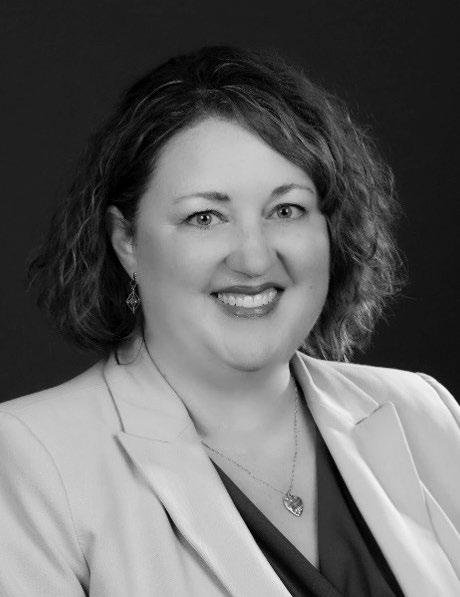

Samuel K. Lee
T. Mitchell Panter
M. Samantha Parris
Courtney Epps Read
Charles S.J. Sharrett











KBA Board of Governors
Courteney M. Barnes-Anderson
R. Kim Burnette
Melissa B. Carrasco
Meagan Collver


Samuel K. Lee
T. Mitchell Panter
M. Samantha Parris
Courtney Epps Read
Charles S.J. Sharrett



DICTA is published monthly (except July) by the Knoxville Bar Association. It is designed to offer information of value to members of the local bar association. The news and features should illustrate the issues affecting the bar and its members. The opinions expressed do not necessarily represent those of the Knoxville Bar Association.
All articles submitted for publication in DICTA must be submitted in writing and in electronic format (via e-mail attachment). Exceptions to this policy must be cleared by KBA Executive Director Tasha Blakney (522-6522).
James T. Snodgrass
James R. Stovall
C. Scott Taylor
Alicia J. Teubert

Dicta is the official publication of the Knoxville Bar Association
Publications Committee
Executive Editor Sarah Booher
Executive Editor Wade H. Boswell, II
Executive Editor Melissa B. Carrasco
Executive Editor Summer McMillan
Brandon Allen
Sherri Alley
Anita D’Souza
Elizabeth B. Ford
Jennifer Franklyn
Joseph G. Jarret
F. Regina Koho
Matthew R. Lyon
Robin McMillan
Angelia Morie Nystrom
Katheryn Murray Ogle
Laura Reagan
Ann C. Short
Cathy Shuck
Eddy Smith
Grant Williamson
Managing Editor Tasha C. Blakney
KBA Executive Director
Legal
Only One Bite at the Apple 19 Schooled in Ethics Recusal Denied? You Can Appeal Immediately 21 Management Counsel
Assessing the EEOC’s Press Release on Anti-American Discrimination
KBA’s Journey to Colombia: The Only Risk Was Wanting to Stay
Of Local Lore & Lawyers A Lawyer Like Jerry
How to Thrive in Law & Life How to Network Like a Pro
Three Stars First Meeting, Second Chance
Hello My Name Is
Century Lawyer
on the Ground
Read Professional Wrestling and the Law, by Alex B. Long
Around the KBA
A Reprint of “Thankfully Sober,” by Carlos A. Yunsan, KBA Immediate Past President
Ten List Come Celebrate (Lent) with Me: A Top 10 List of Attorney Beverages
Privileged to Be in the Law From ABCs to IEPs to LPCs
Libations Orange Hat Brewing Company
KBA Volunteerism Profiling Rachel Hurt
Our Horizons
Service Dogs Fly
Outside My Office Window
Meaning of Life, Part One
There is no additional charge for membership in any section, but in order to participate, your membership in the KBA must be current. To have your name added to the section list, please contact the KBA office at 865-522-6522 or send an email to membership@knoxbar.org.
The ADR Section plans regular CLE throughout the year. If you have a CLE program topic or speaker suggestions, please contact the ADR Section Chairs Joe Jarret (566-5393) or Betsy Meadows (540-8777).
The Bankruptcy Section plans CLE programs and helps coordinate volunteers for the Pro Bono Debt Relief Clinics. If you have a CLE program topic or speaker suggestions, please contact the Bankruptcy Section Chairs Greg Logue (215-1000), Kevin Newton (588-5111), or Shanna Fuller Veach (545-4284).
The Corporate Counsel Section provides attorneys employed by a corporation or who limit their practice to direct representation of corporations with an opportunity to meet regularly and exchange ideas on issues of common concern. If you would like to know how you can get involved or have suggestions for CLE topics, please contact Section Chairs David Headrick (363-9181) or Marcia Kilby (362-1391).
The KBA Criminal Justice Section represents all attorneys and judges who participate in the criminal justice system in Knox County. If you have suggestions for CLE topics, please contact Section Chairs Joshua Hedrick (524-8106) or Sarah Keith (457-5640).
The Employment Law Section is intended for management and plaintiffs’ counsel, in addition to inhouse and government attorneys. If you have a program topic or speaker suggestions, please contact the Employment Law Section Chairs Howard Jackson (615-574-6702) or Tim Roberto (691-2777).
The Environmental Law Section provides a forum for lawyers from a variety of backgrounds, including government, corporate in-house, and private firm counsel. If you have suggestions for CLE topics, please contact Section Chairs Catherine Anglin (804-3741), Kendra Mansur (771-7192), or Jimmy Wright (637-3531).
The Family Law Section has speakers on family law topics or provides the opportunity to discuss issues relevant to family law practice. If you are interested in getting involved or have suggestions for CLE topics, contact Section Chairs Blair Kennedy (539-3515) or Laura Wyrick (297-5511).
The Government & Public Service Lawyers Section is open to all lawyers employed by any governmental entity, state, federal, or local, including judicial clerks and attorneys with legal service agencies. If you are interested in getting involved or have suggestions for CLE topics, contact Section Chairs Ron Mills (215-2050) or Mitchell Panter (545-4167).
The Juvenile Court & Child Justice Section has speakers on juvenile law topics or provides the opportunity to discuss issues relevant to juvenile law practice. If you have suggestions for CLE topics, please contact Section Chairs Justin Pruitt (215-6440) or Mike Stanuszek (766-4170).
The New Lawyers Section is for attorneys within their first three years of practice, and any KBA member licensed since 2023 will automatically be opted-in to the section. If you like to get involved in planning section activities, please contact Section Chairs Dalton Howard (546-0500) or Mari Jasa (546-7770).
The Senior Section schedules a luncheon with a guest speaker every quarter. If you have suggestions for future luncheon speakers, please contact Section Chairs Wayne Kline (292-2307) or Sam Rutherford (659-3833).
The goal of the Solo Practitioner & Small Firm Section is to provide and encourage networking opportunities and offer high quality CLE programs featuring topics that will help solo/small firm attorneys enhance and improve their practices and assist them with law office management challenges. If you have a program topic or speaker suggestions, please contact Section Chairs Tim Grandchamp (392-5936), Brittany Dykes (214-7869), or Stan Young (209-8034).
The Trusts & Estates Section features speakers on trust and estate planning topics and offers a forum to discuss key issues in estate practice. This new section will have its first organizational meeting on April 9 at 3 pm in the Small Assembly Room. If you’d like to get involved or have suggestions for CLE topics or speakers, reach out to Section Chairs Carolyn Gilliam (966-4343) or Stacie Miller (546-7000).
By: Jonathan Cooper Knox Defense

“[It] seems hard to believe that a judge could say, ‘We don’t want you to do that,’ . . . . So, maybe we have to look at the judges, because that’s very serious. I think it is a very serious violation.” – President Donald J. Trump1
“No judge should, frankly, be allowed to make that kind of a decision. . . . It’s a disgrace.” – President Donald J. Trump2
“The real constitutional crisis is taking place within our judicial branch, where District Court judges and liberal districts across the country are abusing their power to unilaterally block President Trump’s basic executive authority.” – White House press secretary Karoline Leavitt3
“There needs to be an immediate wave of judicial impeachments, not just one.” – Elon Musk4
“We will hold this judge, and others who try to stop the will of the people and their elected leaders, accountable.” – Marjorie Taylor Greene5
As I write this, a month before you are reading it, our nation faces the consequences of an apparent conflict between the Executive Branch and the Judicial Branch that has enjoined certain executive orders issued by President Trump. Reaction to these limited and even temporary injunctions by the Trump administration and supporters has drawn sharp criticism from the American Bar Association:
The American Bar Association condemns recent remarks of high-ranking officials of the administration that appear to question the legitimacy of judicial review and demand impeachment of a judge merely because the court did not agree with the government’s position. These comments pose serious risks to our constitutional framework that separates power among three co-equal branches.6
Whether a true constitutional crisis results and how our democracy could be impacted remains to be seen and is not the point of this article.
Instead, this article serves as a reminder of our ethical responsibility to defend our judiciary from inflammatory and unjust criticism. “A lawyer, as a member of the legal profession, is a representative of clients, an officer of the legal system, and a public citizen having special responsibility for the quality of justice.”7
We are expected to actively uphold the integrity of the legal system and respect for our judiciary, even when we are duty bound to contest a ruling with which we disagree. “A lawyer should demonstrate respect for the legal system and for those who serve it, including judges, other lawyers, and public officials. While it is a lawyer’s duty, when necessary, to challenge the rectitude of official action, it is also a lawyer’s duty to
uphold legal process.”8
Denigrating our legal system erodes our society’s faith in the process, which can be especially true where the unjust criticism comes from a lawyer. Thus, “a lawyer should further the public’s understanding of and confidence in the rule of law and the justice system because legal institutions in a constitutional democracy depend on popular participation and support to maintain their authority.”9
Based on these rules, I believe lawyers have an obligation to speak out against malicious attacks, and especially threats, on our judiciary, especially in our State because our judges must observe ethical limitations on public speaking.10 This obligation is even more necessary because of the sharp increase in both threats and acts of violence against judges, both state and federal.11
Did you know that the KBA has a specific written policy on Meeting Unjust Criticism of the Judicial System? We do!
The purposes of this policy, adopted in May 2014, are:
(a) To deal with errors in reporting and with inaccurate or unjust criticism of judges, courts, and/or the administration of justice, as further provided in this policy statement; and,
(b) To be available to the news media as a resource for obtaining information concerning judicial activities, court process, or other technical or legal information about the administration of justice.
We have a referral procedure and written guidelines to determine when the KBA should respond to unfair or inaccurate statements.
I urge you to be alert, therefore, to both explicit attacks and subtle disparagement, either of which erodes public confidence in our legal system and the Rule of Law. Be quick to correct misinformation, to respond to unfair criticism, and to educate your community on the value and importance of our judges.
Each of us has sworn an oath to support the Constitutions of the United States and the State of Tennessee. This means we have promised to stand up for the separation of our government branches and to uphold the legitimacy of our judicial system. And to our judges, know that your local lawyers will stand up for you whenever necessary!
1 President Donald J. Trump, remarks to reporters, quoted in Alexandra Hutzler, Trump, Vance & Musk Take Aim at the Courts as Judges Halt some of 2nd Term Agenda, ABC News (Feb. 10, 2025, 4:49 p.m.), https://abcnews.go.com/Politics/ trump-vance-musk-aim-courts-judges-halt-2nd/story?id=118649658.
2 President Donald J. Trump, remarks to reporters, quoted in Alexandra Hutzler, Trump, Vance & Musk Take Aim at the Courts as Judges Halt some of 2nd Term Agenda, ABC News (Feb. 10, 2025, 4:49 p.m.), https://abcnews.go.com/Politics/ trump-vance-musk-aim-courts-judges-halt-2nd/story?id=118649658.
3 White House Press Secretary Karoline Leavitt, press briefing, quoted in Elena Moore, As Judges Block Broad Actions, White House says Courts Causing Constitutional Crisis, National Public Radio (February 12, 2025, 3:51 p.m.), https:// www.npr.org/2025/02/12/nx-s1-5294666/trump-white-house-constitutional-crisisjudges.
4 Elon Musk, post on X, quoted in Alex Gangitano, Musk Calls for ‘Wave of Judicial Impeachments,’ The Hill (Feb. 12, 2025, 1:10 p.m.), https://thehill.com/homenews/ administration/5140939-elon-musk-calls-judges-impeached/.
continued on page 11
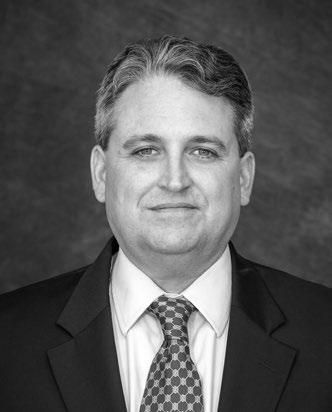
By: Matthew T. McDonald Bernstein, Stair & McAdams LLP
The newest United States Magistrate Judge for the Eastern District of Tennessee, Michael J. Dumitru, took his oath of office on January 1, 2025. Magistrate Judge Dumitru succeeds Magistrate Judge Susan K. Lee. I recently had the pleasure of speaking at length with Magistrate Judge Dumitru about his personal background and new position in the District Court.
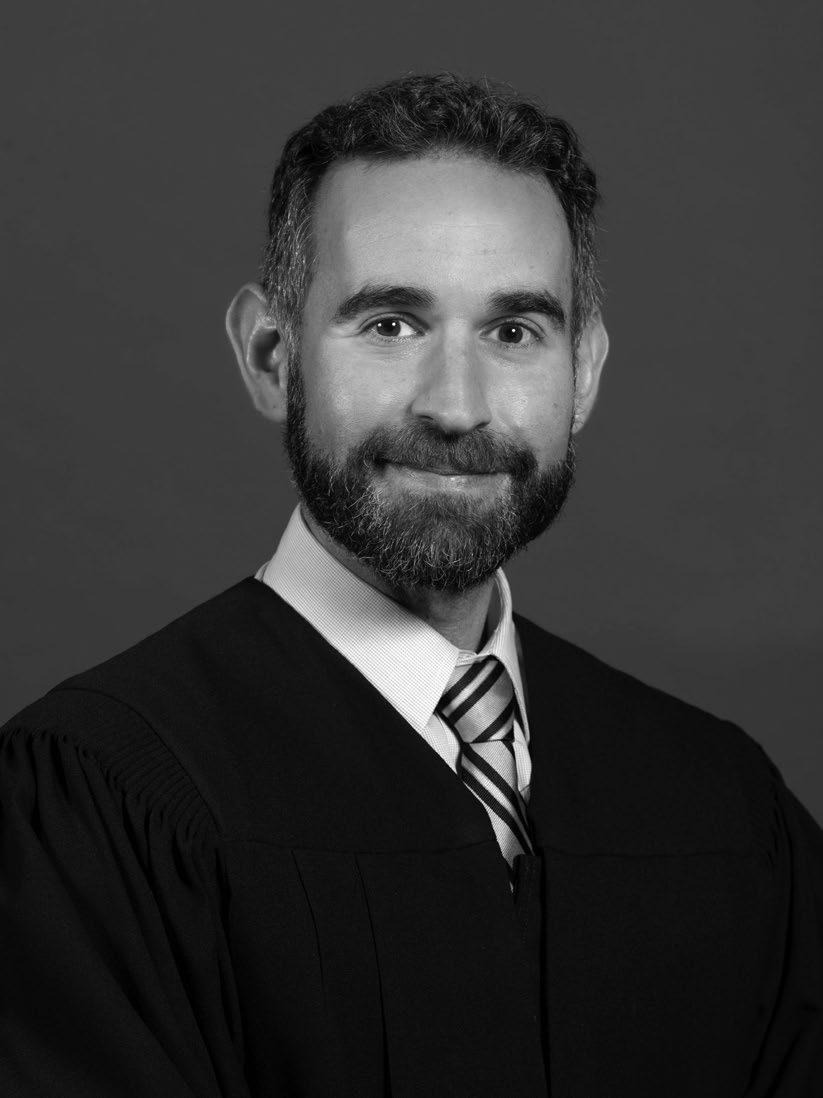
Judge Dumitru was born in Queens, New York, the first of his family to be born in the United States. His parents, Romanian immigrants who fled communist persecution and moved to the United States in the late 1960s and early 1970s, met for the first time in the United States and were married here. Judge Dumitru’s upbringing provided him with a different perspective on what it means to be an American citizen and what it means to live here.
Judge Dumitru’s parents came from a place where democracy did not exist, the rule of law being what one person decides the rule of law is. Discussions of civic duty and the structure of democratic governance were frequent topics of conversation in his home while growing up, these being important topics of learning for his parents. These issues were not taken for granted in his upbringing, and he has carried this sense of civic duty with him in his personal life and career.
His educational path is certainly reflective of his civicsfocused upbringing. He earned a Bachelor of Arts in Political Science from Fordham University in 2004. In 2006, he graduated from New York University with a Master of Science in Global Affairs. He attained his Doctor of Jurisprudence from Vanderbilt University Law School
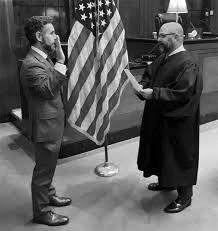
in 2011.1
In the first years of his career as a lawyer, Judge Dumitru focused almost exclusively on litigation, living in both Chattanooga and later in Nashville. He returned to Chattanooga, and in 2022 he was elected as a Circuit Court Judge in Hamilton County.
Judge Dumitru has extended his appreciation for civics education to our younger citizenry. As a Circuit Court Judge in Hamilton County, he invited elementary and middle school classes into the courthouse, sitting in the courtroom and talking with the kids about civics issues, and particularly about issues in the judiciary, and demonstrating the openness and transparency of our judicial system. He attempts to dispel the mysteriousness of the bench and instead emphasizes that judges are human beings with a job to do. He now looks forward to working with Senior Judge Curtis Collier, who is also focused on educational programs, to continue his youth outreach in the District Court.

As a judicial officer, his litigation experience aids his understanding of attorneys, parties, and procedure. The often-tense nature of our adversarial system is fresh in Judge Dumitru’s mind when he is on the bench. Judge Dumitru said that he would like all attorneys and parties to know that when they appear or litigate in his courtroom, whether by consent or for pre-trial motions, they will be treated professionally and with civility, and that he will demand that attorneys afford the same civility to each other, both in the courtroom and when communicating in documents of record. Judge Dumitru emphasized that our chosen profession should rise above the level of discourse that is prevalent as of late, and that we should hold ourselves to a higher standard.
After my conversation with Judge Dumitru, I looked back at our own bar association’s guidelines. The KBA has had a renewed emphasis on such higher standards of civility in recent years, having adopted our own Guidelines of Professional Courtesy and Conduct, which are available under the Publications tab on the KBA website. We would all do well to frequently review those guidelines.
We welcome Magistrate Judge Michael J. Dumitru to his new position and look forward to working with him in the years to come.
1 Judge Dumitru’s educational background taken from the January 2, 2025 press release issued from the Office of the Chief District Judge Travis R. McDonough. Accessed at https://www.tned.uscourts.gov/sites/tned/files/2025_01_PR.pdf
By: Robin McMillan Co-Author of the upcoming book People Behind the Precedent
Last month, I highlighted procedural aspects of finality. This month features some exceptions to the final judgment rule that allow for immediate appeal of an otherwise non-final order.1 Recognizing when an otherwise non-final order is final for purposes of appeal is critical to preserving issues.
First and foremost, Tenn. R. App. P. 9 provides for the possibility of an interlocutory appeal and Tenn. R. App. P. 10 an extraordinary appeal. Both require an application for permission to appeal filed in compliance with the rule. Furthermore, these appeals are not as of right, but are within the discretion of the intermediate appellate court.
Other rules provide for an appeal as of right of non-final judgments. For instance, Rule 24.05 of the Tennessee Rules of Civil Procedure provides that an order granting or denying a motion to intervene is a final appealable judgment.2
Rule 54.02 of the Tennessee Rules of Civil Procedure also provides a mechanism for an immediate appeal as of right of an otherwise non-final order. The rule, however, was not meant to circumvent the final judgment rule or the procedure for applying for a Rule 9 interlocutory appeal.3 A trial court does not have unlimited discretion to certify an order pursuant to Rule 54.02 and should not do so routinely or as a favor to counsel.4 In order to be appealable, a Rule 54.02 order must dispose of an entire claim or party and must contain the “magic” language required by the rule, i.e., there is no just reason for delay and entry of judgment is directed.5 Simply citing Rule 54.02 in the order is insufficient. Failure to dispose of an entire claim or party or to contain the “magic” language renders the order non-appealable regardless of the understanding of the parties.
Before turning to statutes, I need to address a subject that often confuses, i.e., the impact on finality of an award of attorney’s fees versus one of discretionary costs. When a trial court enters an otherwise final order and awards attorney’s fees, but does not provide an amount certain of the award, the order is not a final judgment.6 With an exception discussed below, the award must be for an amount certain of attorney’s fees for purposes of finality. In contrast, when a trial court awards discretionary costs but does not include an amount, the uncertainty of the amount does not impact finality, and the otherwise final order is immediately appealable.7
The exception with regard to awards of attorney’s fees is contained in Tenn. Code Ann. § 20-12-119. The statute provides that in all civil cases when a trial court grants a motion to dismiss for failure to state a claim upon which relief may be granted it shall award costs including attorney’s fees, but the award shall not be made until all appeals have been exhausted and the order granting the motion to dismiss has been upheld.8 Thus, in contrast to the general rule regarding attorney’s fee awards, an order that falls within this statute must be immediately appealed even though the amount of attorney’s fees remains pending.
An order granting or denying class certification must also be appealed immediately. In fact, Tenn. Code Ann. § 27-1-125 provides not only for immediate appeal, but also requires that the appeal be filed within a shortened time period—10 ten days—rather than the normal thirty days.9
The Tennessee Public Participation Act, Tennessee’s “anti-slap” statute, provides for an immediate appeal of an order either dismissing or refusing to dismiss an action filed pursuant to the act.10

Similarly, Tennessee’s Uniform Arbitration Act provides for immediate appeal of several listed orders that otherwise would be nonfinal judgments, including orders to compel or to stay arbitration.11
Tennessee also provides that the State has the right to an immediate appeal as of right of interlocutory orders concerning injunctions in cases brought against the State that challenge the constitutionality of a Tennessee statute.12
Some exceptions to the final judgment rule can be found in case law. For instance, when a probate court rejects all wills submitted for probate and enters an order finding that the decedent died intestate, that order constitutes a final, appealable judgment regardless of the fact that estate matters remain pending.13
An order finding contempt also becomes immediately appealable as of right upon the fixing of a punishment for the contempt.14
1 Discussion herein provides a sampling, not a comprehensive list.
2 Tenn. R. Civ. P. 24.05; see also, e.g., Lexington Charter, LP v. FBT of Tennessee, Inc., No. W2021-01138-SC-R11-CV, 2023 WL 3578587 (Tenn. May 15, 2023) (discussing that appeal of order regarding intervention was untimely).
3 See, e.g., RE Land TN, II, Inc. v. 840 Development Group, LLC, No. M2023-01692COA-R3-CV, 2024 WL 5103306, at *5-6 (Tenn. Ct. App. Dec. 13, 2024) (explaining it is not Court policy to simply convert improper Rule 54.02 appeals into Rule 9 appeals and stating: “Rule 54.02 is part of a system of rules that concern appellate jurisdiction, all of which are readily available to be read, and all of which must be followed.”). Please note that this is a Memorandum Opinion pursuant to Tenn. R. Ct. App. 10, which may not be cited or relied upon in any unrelated case. As I am not citing it for use in a case, my reference to it for purposes of illustrating the point in this article does not violate the rules.
4 Id. at *2.
5 Id. at *2-3.
6 See, e.g., E. Solutions for Bldgs., LLC v. Knestrick Contractor, Inc., No. M201700732-COA-R3-CV, 2018 WL 1831116, at *4 (Tenn. Ct. App. April 17, 2018) (finding attempt to certify as final under Rule 54.02 ineffective).
7 See, e.g., Gunn v. Jefferson Cnty. Econ. Dev. Oversight Comm., Inc., 578 S.W.3d 462 (Tenn. Ct. App. 2019).
8 Tenn. Code Ann. § 20-12-119(c)(3).
9 Tenn. Code Ann. § 27-1-125.
10 Tenn. Code Ann. § 20-17-106.
11 Tenn. Code Ann. § 29-5-329.
12 Tenn. Code Ann. § 27-1-101.
13 In re Estate of Henderson, 121 S.W.3d 643, 644 (Tenn. 2003).
14 Moody v Hutchinson, 159 S.W.3d 15, 30 (Tenn. Ct. App. 2004).
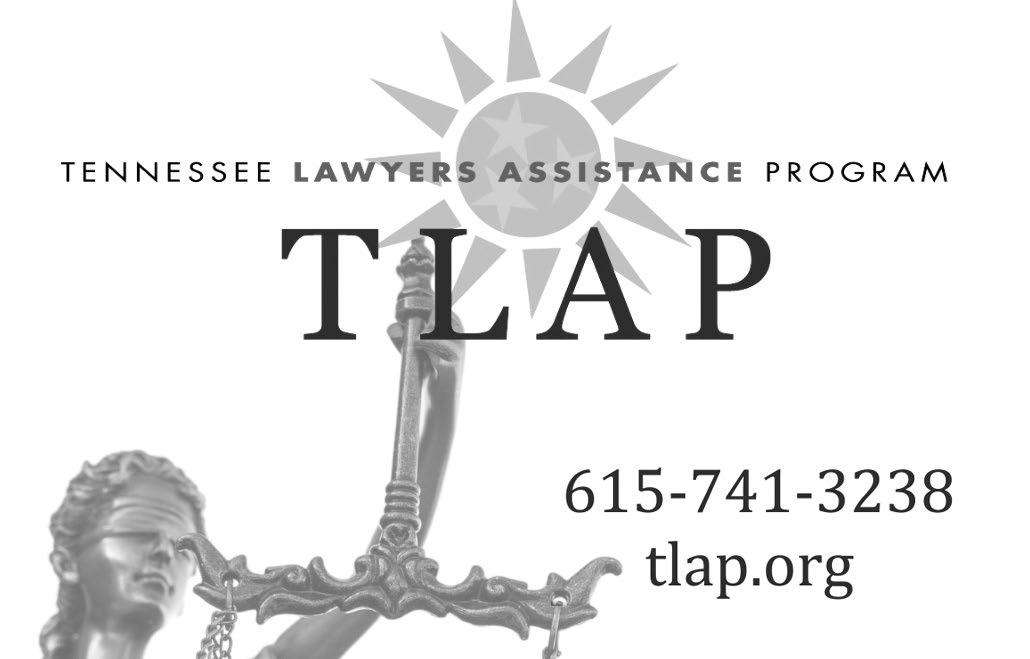

By: Regina Koho Tennessee Valley Authority Office of the General Counsel
In January of this year, the Tennessee Supreme Court decided a case involving the interplay between the general “Saving Statute” in Tennessee Code Annotated section 28-1-105(a), which provides that a timely filed action that is dismissed without prejudice may be “commence[d] a[gain] . . . within one (1) year after” the dismissal, and Tennessee Code Annotated section 29-26-121(c), which is part of the Health Care Liability Act. The latter extends “the applicable statutes of limitations and repose [in a medical malpractice suit]. . . for a period of one hundred twenty (120) days from the date of expiration of the [applicable] statute of limitations and statute of repose” when the plaintiff provides the required statutory notice to the defendant about the suit. The specific question before the Court in Richards v. Vanderbilt University Medical Center was whether, if a litigant timely files a medical malpractice suit and voluntarily dismisses, Tennessee Code Annotated section 29-26-121(c)’s 120-day extension allows him to refile beyond the Saving Statute’s one-year limitations period.
The facts of the case before the Court in Richards were relatively straightforward. In August 2013, the plaintiff, Clayton Richards, had surgery at Vanderbilt University Medical Center (VUMC) that resulted in paralysis.1 He filed a negligence suit against VUMC, and although he filed beyond the applicable one-year statute of limitations, his claims were timely because he provided VUMC with the requisite statutory notice, meaning that the statute of limitations was extended pursuant to Tennessee Code Annotated section 29-26-121(c). Mr. Richards then took a voluntary nonsuit in October 2019.2
Mr. Richards refiled his suit, but he failed to do so within the oneyear time period required by the Saving Statute. However, he contended that his suit was nonetheless timely “because he had provided notice to VUMC . . . on September 15, 2020, in accordance with Tennessee Code Annotated section 29-26-121.”3 Thus, Mr. Richards “presumed that his provision of notice to VUMC triggered the 120-day extension referenced in section 29-26-121(c).”4 VUMC disagreed, and moved to dismiss on grounds that the Saving Statute was “not a statute of limitations or repose” as contemplated by the extension in section 29-26-121(c) and thus the refiled suit was untimely.5
The trial court granted VUMC’s motion to dismiss, finding that Mr. Richards’ case was rendered untimely by his failure to refile within the Saving Statute’s one-year timeframe.6 The Court of Appeals affirmed, and the Tennessee Supreme Court subsequently granted Mr. Richards’ application for permission to appeal.7
From the Court’s perspective, the issue was one of relatively straightforward statutory construction. The Court observed that, although Tennessee Code Annotated section 29-26-121(c) referenced the applicable statutes of limitations and repose, it did not mention the Saving Statute. Given the fact that the Saving Statue was enacted well before section 29-26-121(c), the Court “presume[d] that the legislature[’s]” exclusion was intentional.8 The Court likewise concluded
that the canon of expressio unius est exclusio alterius9 dictated the same result, reiterating that “[i]t would have been simple for the General Assembly to list the Saving Statute alongside the applicable statutes of limitations and repose in section 29-26-121(c),” yet it chose not to do so.10
Mr. Richards relied on a previous Tennessee Supreme Court opinion, Rajvongs v. Wright, 11 to bolster his position, and despite recognizing its factual similarities,12 the Court easily distinguished the decision. Rajvongs was decided shortly after the Health Care Liability Act was enacted and involved “the narrow category of plaintiffs who filed their initial complaints prior to the effective date of section 29–26–121, dismissed their original actions, and refiled their actions after the effective date of the statute.”13 Under those limited circumstances, the Court allowed the plaintiff “to utilize Tennessee Code Annotated section 29-26-121(c)’s 120-day extension.”14 The Court agreed with VUMC’s characterization of Rajvongs as a “limited exception that provide[d] for a necessary modification to prevent an unfair application of . . . [section] 29-26-121 to transitional plaintiffs” and “decline[d] to extend the Rajvongs holding to non-transitional plaintiffs” like Mr. Richards.15
As a result, the Court unanimously held that “the 120-day extension in section 29-26-121(c) does not extend the Saving Statute’s one-year refiling period,”16 and because Mr. Richards’ refiled case could “not benefit” from said extension, his lawsuit, filed beyond the applicable oneyear timeframe, was untimely.17
Richards provides an important procedural clarification for medical malpractice litigants who voluntarily dismiss their initial suit and seek to refile. Although such plaintiffs must undoubtedly comply with the Health Care Liability Act’s notice provisions, its 120-day extension does not apply to the refiled case. Instead, a litigant must take care to refile within the one-year timeframe provided for in Tennessee Code Annotated section 28-1-105(a).
1 Richards v. Vanderbilt Univ. Med. Ctr., No. M2022-00597-SC-R11-CV, 2025 WL 259059, at *1 (Tenn. Jan. 22, 2025).
2 Id. (footnote and citation omitted).
3 Id. (internal quotation marks omitted).
4 Id.
5 Id.
6 Id. at *2.
7 Id.
8 Id. at *4.
9 This canon of statutory construction “dictates that ‘the expression of one thing implies the exclusion of others.’” Id. (quoting Rich v. Tenn. Bd. of Med. Exam’rs, 350 S.W.3d 919, 927 (Tenn. 2011)).
10 Richards, 2025 WL 259059, at *4.
11 432 S.W.3d 808 (Tenn. 2013).
12 Richards, 2025 WL 259059, at *4.
13 Rajvongs, 432 S.W.3d at 813.
14 Richards, 2025 WL 259059, at *4.
15 Id. at *5 (internal quotation marks and footnote omitted).
16 Id. at *3.
17 Id. at *5.
By: R. Deno Cole Cole, Guindi & Pienkowski

Members of the KBA and others forming an intimate group ventured to Colombia and received an indelible education apart from the advertised five hours of CLE. Colombia’s violent and tumultuous reputation caused many would-be participants to shy away. KBA director, Tasha Blakney, recalled inquiries from KBA members who expressed cautious interest in the trip asking, “Colombia? Are you sure it’s safe?”1 Ultimately, many of the curious members declined to sign-up for the trip, but speaking on behalf of those who did, the journey can only be described as a transformative experience.

We flew over lush, rolling green hills to land in the capital city of Bogotá—the city of eternal fall with an average elevation of 8,660 feet. Bogotá is a sprawling city of eight million, offering everything you could find in a first-world big city, such as Michelin-star restaurants, 5-star hotels, bustling nightlife, museums, and luxury shopping. Colombia produces roughly 90% of the world’s emeralds, boasting retail stores solely dedicated to their sale. While emerald shopping, a few of us met actress Amparo Grisales, the most famous Colombian actress before Sofía Vergara.
The first morning, we encountered Bogotá’s famously clogged traffic and admired the local graffiti before arriving at the cable cars that would take us up to Monserrate for breathtaking views overlooking Bogotá, around 10,500 feet above sea level. A few of us braved a local delicacy sold by nearby vendors—giant fat-bottomed ants. No one was poisoned! We later learned at the gold museum about Colombia’s vast gold deposits and how indigenous tribes traded gold for salt with the Spanish on a 2:1 gold-to-salt ratio.
Speaking of traffic, the motorcycle and scooter riders split lanes and drive like daredevils. At least one motorcyclist is killed each day. License plate numbers must be displayed on drivers’ helmets, an outdated law passed to deter contract killings in the 1980’s so that fleeing assassins were easier to identify. Such murders are unheard of today and were mostly connected with guerrilla groups and narcos
We learned from civil rights lawyer, Clara Leal-Patarroyo, and British ex-pat-to-Bogotá/author/journalist, Richard McColl, about the civil unrest caused by Marxist–Leninist guerrilla groups, supported by the Soviet Union, which recruited peasants and others to take up arms for the cause. Many groups ultimately abandoned their Marxist ideals and dabbled in the cocaine trade. FARC, the most well-known group, murdered government leaders and committed untold numbers of human rights violations. At the same time, members of the military, in order to gain rank and other promotions, killed innocent peasants claiming that they were FARC members—otherwise known as the “false positive” scandal. In 2017, a final peace accord was reached, and FARC was disarmed. There are areas of Colombia, such as near the Venezuelan
border, where vestiges of guerrilla groups remain, as no peace agreement was reached with them. However, the Colombians are optimistic that, as the accord continues to be implemented, the truce will eventually result in nationwide peace.
Unfortunately, the poverty resulting from the former unrest lingers. One of the heartbreaking, yet inspiring, moments was our visit to an orphanage. Mothers who can’t afford to raise a child have the option to surrender them to this orphanage. The workers there truly love the kids under their care, who range in ages from newborn to 8 years old. The walls were covered in pictures of successfully adopted kids, including those in the US. I’ll never forget the 1.5-year-old adorable girl who kept smiling and waving to me from her crib.
The last adventure we had in Bogotá was a trip outside the city to Zipaquirá, where we went over one-half mile underground to experience the awe-inspiring Catedral de Sal, an underground cathedral made from the salt mines. There is only one other such cathedral in the world, located in Poland.
We next flew to Medellín, where we initially visited a flower farm on the outskirts, part of a vast industry that exported nearly 60 million tons of flowers to the US for Valentine’s Day alone. We arrived in style to the city via gondola from atop the mountain to take in glorious views. Medellín is also referred as the city of eternal spring, and like other Colombian cities, contains neighborhood designations based on property values and income, Levels One through Six, with Level Six being the most affluent. Although the nightlife remains active, the city is attempting to shake its reputation as the home of cocaine kingpin Pablo Escobar. Escobar was truly a ruthless monster and the crimes he committed aren’t worth acknowledging. Colombians generally don’t care for the series “Narcos,” because the cocaine trade no longer defines them, not to mention that the actor portraying Escobar is Brazilian and couldn’t master the local Paisa accent.

We visited Comuna 13, the oncelawless neighborhood that Escobar formerly controlled. It is now filled with tourists, and you feel as safe walking there as you might around Disney World. At the top of the hillside there are amazing views of the city juxtaposed with a chilling view of the largest urban mass grave ever uncovered in the city. Our guide, Johnny, grew up in Comuna 13 and was one of the happier guys you’d ever meet, despite having experienced a traumatic upbringing. He told tales of public executions, stepping over dead bodies coming home from school, and being dragged out of school to act as part of a human shield for FARC guerrillas. He lived in a nearby apartment and didn’t mind the steep, 25-minute walk home.
Lastly, we were off to the coastal city of Cartagena, the city of eternal continued on page 11
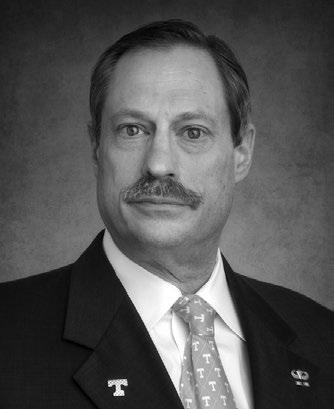
By: Joe Jarret, J.D., Ph.D. Attorney, University of Tennessee
It has been argued by his admirers that there has never been and will never be another man like Jerry Tubb. It could also be said that rare is the lawyer like Jerry was.
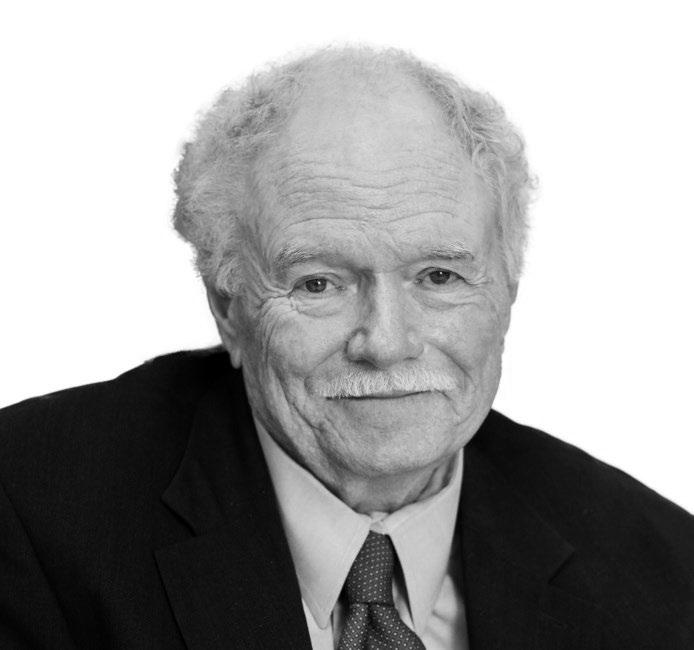
Jerry was born in Midwest City on July 3, 1939. You would have thought he would have given up on life during the six excruciating months in 1955 and 1956 that he spent, alone, on his back, in the “Crippled Children’s Hospital.” With the Polio virus ravaging his legs and robbing him of the ability to ever move them again, and with the vaccine arriving in Oklahoma just a few months too late, his mother was dying of breast cancer and his father had suffered a heart attack. But Jerry did not give up. He instead quite literally pushed himself upright, taught himself to walk again with arm crutches and heavy metal braces fastened to his legs, and returned to high school for his junior year, without a mom.
You would have thought he would have found it too difficult to move through the pre-elevator world of the 50’s and 60’s. But he didn’t. Jerry thrived. While in college at the University of Oklahoma, he leaned into life as a leader in student government and the Interfraternity Council. He married his high school sweetheart Charla Rae Hull in December 1960, and after the birth of his daughter Jennifer in October 1961, Jerry drove from Midwest City to Norman for his first day of law school in the fall of 1962. When he arrived at Monnet Hall (the “Law Barn” back then), he discovered five flights of 64 stairs separating the front door from the library on the 5th floor. (As he once put it, “They were building an elevator at the time, but I only got the shaft.”). Undeterred, with his two crutches in one hand, with his other hand on the railing, and with a bag of bulky law books draped around his neck, Jerry Tubb walked himself backward, step by step, up and down those 64 stairs for three years. He graduated second in his class.1
You would have thought Jerry would have become needy, pessimistic, and maybe even jealous of others over the seven decades his body continued to fail him again and again and again, leaving him both paralyzed and without feeling below his chest in the last years of his life, but he never did. Jerry kept getting up, day after day—in later years only with the help of his caregiver Kimberly Marshall (who once told him, “I will never leave you,” and she never did)—and he kept treating each moment of life as a gift. He was always good-spirited, generous, and wise. He loved helping and inspiring everyone who crossed his path (and even some who didn’t) to live more joyous lives. He brought destitute clients into his law office, showing them a photograph of the earth from the moon while reminding them, “Your challenges seem gigantic, but they aren’t. You can’t even see them from the moon.” He invented the phrase, “Craft a tool from the mud in which you are stuck,” and he lived that maxim every single day.
He delighted in giving gifts to make life easier for others, and he recently anonymously bought 200 ice creams for customers of Charlie’s Market in La Veta, Colorado. He sent fruit to firefighters. He was genuinely funny. He often said, “If you have the chance to be right or kind, pick kind every time.” He disagreed without being disagreeable.
He learned to ski. He never complained. He was kind and caring, taking others’ troubles on his back.
On Monday, May 22, 2023, at 4:55 p.m., Jerry died peacefully in his lovely home, finally free from corporeal limitations. He breathed his very last breath with his son’s arms around him, with his law partners at the foot of his bed telling him how much they loved him, and with the cardinals singing just beyond his bedroom, in the garden that he had so lovingly cared for and kept just the way Charla left it when she died two years earlier.
A complete retelling of the wonders and miracles Jerry brought to the world would fill every page of this magazine today and many more, so there is no room to recount them all. If, however, you would like to be further inspired by his truly miraculous life, ask his surviving daughter, son, brother, and their families, or maybe just ask any of the thousands and thousands of people whom Jerry helped, entertained, and inspired over his nearly 84 years on earth. Any of them will joyously, gratefully, and tearfully share more of Jerry Tubb’s unbelievable stories than you can imagine,and all of them are true. Indeed, we need more lawyers like Jerry!
1 Excerpts from The OklahOman, May 26, 2023. The OklahOman is the largest daily newspaper in the state of Oklahoma. Oklahoma Publishing Company.

PRESIDENT’S MESSAGE, continued from page 5
5 Congresswoman Marjorie Taylor Greene, remarks during hearing, subpanel of the Oversight and Government Reform Committee, quoted in Jim Saksa, DOGE Fight: New Subcommittee holds its First House Hearing, Roll Call (Feb. 12, 2025, 2:49 p.m.), https://rollcall.com/2025/02/12/doge-fight-new-subcommittee-holds-itsfirst-house-hearing/.
6 The American Bar Association, ABA Condemns Remarks Questioning Legitimacy of Courts & Judicial Review, (Feb. 11, 2025), https://www.americanbar.org/news/ abanews/aba-news-archives/2025/02/aba-statement-re-remarks-questioningjudicial-review.
7 Tennessee Rules of Professional Conduct (TRPC), Preamble (2).
AROUND THE BAR, continued from page 9
summer with Miami-like weather. We stayed in the walled city, which was built to protect against pirates and other invaders. At San Felipe Castle, a fort defended by 3,600 soldiers, the Spanish repelled an English attack in 1741 by 27,000 soldiers. Had the British prevailed, English likely would have been the prevailing language of South America.
This trip would not have been the same without the guidance of Bogotá native, Berónica Buitrago, who was with us each step of the way. Berónica, a seasoned and knowledgeable traveler, guided us through her country with good humor and grace. We were all sad to say goodbye to her.
I extended my trip to explore Múcura and Tintipán Islands—coral islands located in the Archipelago of San Bernardo, a two-hour boat ride from the coast. The islands were beautiful and boasted iguanas, scarlet macaws, and monkeys. Swimming with bioluminescent plankton by the mangroves under the stars was the most magical activity of the islands, highlighted by witnessing a shooting star.
The locals lived well below the poverty level. When venturing out, I ran into Maria, who cleaned my room. She introduced me to her daughter whom she adopted as a baby after a Venezuelan woman
8 TRCP, Preamble (6).
9 TRCP, Preamble (7).
10 See, e.g., Code of Judicial Conduct, Canon 1, Rule 1.2 Promoting Confidence in the Judiciary; CJC, Canon 2, Rule 2.10 Judicial Statements on Pending and Impending Cases.
11 National Center for State Courts, “NCSC supports new legislation to protect state court judges from escalating threats,” last reviewed on February 13, 2025 (“In 2021, individuals protected by the U.S. Marshals Service—including federal judges, prosecutors, and court officials—faced over 4,500 threats, a 400% increase since 2015.”)
abandoned her, although Maria herself was poverty-stricken and already struggling to care for her own children. Her kids were content to play on dirt streets, not unlike the kids on nearby Santa Cruz del Islote, the world’s most densely populated island. There, I witnessed happy kids floating in the sea on styrofoam flotsam. They seemed happier than the wealthy Colombian teen at my resort whom I overheard complaining to her friend about the shrimp being over a day old. This experience brought about a new perspective on what’s important in life.
Colombia, like anywhere else, offers sinful delights. If you search out these risky activities, you will find trouble. But this is true of all countries, including our own. Common sense will keep you safe, whether in the U.S. or Colombia. I highly recommend Colombia as a travel destination for wholesome enrichment. It offers more than excellent coffee, chocolate, rum, and nightlife. Is it safe? ¡Todo bien!
1 To be sure, the U.S. State Department’s travel advisory paints a scary picture of civil unrest, but this warning seems comical after an in-person visit to Colombia will reveal the opposite. See https://travel.state.gov/content/travel/en/ traveladvisories/traveladvisories/colombia-travel-advisory.html




By: Emily Heird, LPC/MHSP Vantage View Coaching
Networking is an essential skill for lawyers and legal professionals. Whether you are seeking new clients, exploring career opportunities, or building a robust professional reputation, effective networking can help you achieve your goals. Yet many lawyers I work with are uncomfortable with networking. Imposter syndrome, self-doubt, and lack of confidence in social skills prevent them from maximizing the impact of networking. This article explores research-backed strategies and actionable tips to elevate your networking skills while approaching it with a mindset of relationship-building and genuine connection.
Networking goes beyond exchanging business cards or collecting online social media connections. According to research published in the Academy of Management Journal, professionals with strong networks enjoy better career outcomes, including higher salaries, greater job satisfaction, and increased opportunities for advancement. For lawyers, networking can:
• Open doors to new clients, referral sources, and future career opportunities.
• Provide access to mentors and industry insights.
• Enhance credibility and visibility within the legal community.
• Foster collaboration on complex cases or projects.
One of the biggest hurdles to effective networking is approaching it with a mindset of “What can I get?” instead of “What can I give?”
Vanessa Van Edwards, a behavioral investigator and author of Captivate: The Science of Succeeding with People, emphasizes the importance of creating meaningful connections rather than seeking immediate gains. When you focus on helping others, introducing connections, or offering insights, you become a trusted and valued contact.
Preparation: Know Your Goals and Audience
Networking is more effective when approached with intention. Before attending an event, ask yourself:
1. What are my goals for this event? (E.g., meeting two new connections, initiating three conversations, looking for a mentor)
2. Who is likely to attend, and how can I connect with them?
Researching attendees or speakers in advance can provide conversation starters. For example, if you know a keynote speaker has published articles on a topic relevant to your practice, reading their work can help you engage them meaningfully.
I teach my clients how to use visualization techniques to prepare for the event. They can visualize themselves feeling confident, initiating conversations, having successful conversations, practicing exiting conversations, and how to recover when there is an awkward moment. Visualization primes the brain for how to act and what to expect in the real environment.
Science Insight: The Power of Shared Interests
Research from Stanford University shows that finding common ground, whether a shared alma mater, mutual connections, or similar interests, builds trust and rapport. Prepare to identify these commonalities through light research or active listening during conversations.
First impressions matter. Studies show that people form initial judgments within seconds, often based on nonverbal cues. To ensure a positive impression:
• Dress appropriately: For legal professionals, this usually means business attire. Don’t be afraid to utilize your attire to stand out. For example, a bold piece of jewelry can be a conversation starter.
• Mind your body language: Stand tall, maintain an open posture, and smile genuinely.
• Offer a confident handshake: It’s a classic gesture that conveys
professionalism and warmth.
Vanessa Van Edwards highlights the importance of “front-loading charisma,” which involves showing warmth and competence early in interactions. Simple techniques like remembering names and using them in conversation can make you more memorable.
Master the Conversation
Networking conversations can be intimidating, but they don’t have to be. The key is to focus on the other person and create a dialogue, not a monologue. Lawyers are great at asking questions. Use your natural curiosity skills but leave the cross-examination for the courtroom.
Instead of defaulting to generic questions like “How’s work going?” try:
• “What’s the most fun thing you’ve done outside of work in the past month?”
• “Who is an ideal client to refer to your business?”
These questions invite engaging stories and deeper connections. This F.O.R.M. acronym—Family, Occupation, Recreation, and Motivation— provides a guide for meaningful topics to explore in conversation. For instance:
• Family: “I heard you recently moved to Knoxville. How’s the transition been?”
• Recreation: “Do you have any favorite local spots for hiking or dining?”
• Motivation: “What inspired you to enter this field?”
Active listening means giving your full attention to the speaker and responding thoughtfully. Avoid interrupting or thinking about your next comment while they’re speaking. Techniques like nodding, paraphrasing, and asking follow-up questions demonstrate genuine interest.
Networking can be daunting, especially for introverts. However, preparation and mindset shifts can ease the discomfort. Begin with smaller events or one-on-one coffee meetings rather than large conferences. These settings allow for deeper, more manageable interactions. Research from Harvard Business School suggests that reframing nervousness as excitement can improve performance in social situations. When you feel anxious about networking, remind yourself that this is an opportunity to learn and grow. Practice positive, encouraging self-talk as this has an outsized impact on your presence at the event.
Everyone at the event started out their career in the same place as you. After the event, spend time reviewing how it went to gather data, not to be overly self-critical. If you had an embarrassing or awkward moment, chances are, no one will remember it. Everyone is focused on their own anxieties about how they did (the Spotlight Effect). Evaluate what went well, whether you met your goals, and what is one thing you can improve for next time.
Build and Maintain Your Network
Networking doesn’t end after the initial meeting. Consistency is crucial for building long-term relationships. Utilize technology at the event to add LinkedIn connections or get their email. After meeting someone new, send a follow-up email or message within 48 hours. Reference your conversation and, if applicable, offer something of value— such as a relevant article or introduction to a contact. Create a database of contacts to check in with periodically.
You can learn and master this skill. Investing time and energy into building a strong network will yield significant returns throughout your career. The connections will become invaluable resources that open doors, create opportunities, and support long-term success.
By: Melissa B. Carrasco Carrasco Trump, PLLC
“Were you the lawyer that was in the courtroom when Ms. Henson presented her pro se petition and felt like someone needed to be representing her? Was that you?”1 Those were the first two questions which Judge Easter of the Tennessee Court of Criminal Appeals asked attorney Kylene M. Ross during oral argument on January 21, 2025.
Judge Easter was talking about Caitlyn Brooke Henson, and something that happened in the Sumner County Criminal Court in February 2024. Ms. Henson was in court that day, looking for a second chance.
Five years earlier, in 2019, she had been arrested for attempted possession of heroin with the intent to sell. On September 19, 2019, she entered a conditional guilty plea, and the Court placed her on judicial diversion with four (4) years of probation under the supervision of Community Corrections.2 This is a special procedure under Tennessee Code Annotated Section 40-35-313, which offers a first-time offender, indicted for certain crimes, a second chance – a carrot at the end of the stick, if you will. If the person successfully completes a period of probation or diversion, “then upon expiration of such period, the court shall discharge such person and dismiss the proceedings against him.”3 Then, the person can apply for expungement.4
This second chance has been a part of the Tennessee Code since 1989.5 But, it certainly isn’t a “Get out of Jail Free” card. If the person violates the terms of diversion, “the court may enter an adjudication of guilt and proceed as otherwise provided.”6
That basically is what happened to Ms. Henson. Six days after her conditional plea, she failed a drug test, and then, about two weeks later, she failed a second drug test.7 What few people knew is that she had experienced a miscarriage and turned to illegal substances for relief.8 No, it was not the best choice; yes, both incidents violated her probation; and, yes, she was arrested on a probation violation warrant.9 After serving three months in the Sumner County jail, she was given a medical furlough and successfully completed a 60-day treatment program.10 Then, she was released on her own recognizance.11
Then, there was another hearing – this time to figure out whether Ms. Henson could continue in the diversion tract – with the hope of expungement at the end – or whether an adjudication of guilt should be entered, followed by sentencing.12 At the hearing, Ms. Henson admitted to the violations, and explained to the Court about her miscarriage, her poor choice to turn to substances, and what she had learned through recovery.13
Then, the Court asked if she wanted to have her record expunged, and Ms. Henson responded that she did.14 So, the Court entered an Order revoking her probation, returning Ms. Henson to diversion under the supervision of Community Corrections with credit for the time served in jail and in the treatment program, and stating that she “shall retain her eligibility for dismissal of this cause pursuant to [Section] 4035-313.”15
For the rest of her four years of diversion, Ms. Henson had no further incidents or probation violations. She had a baby and stayed sober.16 She paid all of her court costs and probation costs.17 In fact, she did so well that on September 18, 2023, Community Corrections recommended to the trial court that it terminate her supervision. The Court did, entering the Order on September 18, 2023, exactly four

years after her initial, conditional guilty plea.18 A few months later, her Community Corrections officer encouraged her to seek expungement of her record per the statute. After all, the Court’s Order stated that she remained eligible.19
So, Ms. Henson did what anyone would likely do under similar circumstances. She wrote a letter to the Court asking it to expunge her record.20 The Court deemed Ms. Henson’s letter to be a motion, and the State requested a hearing. It opposed Ms. Henson’s “motions” because of the probation violations from four years ago.21 Ms. Henson did not have the benefit of counsel, and she thought she was just going to court to get the expungement she requested.22
She was gravely mistaken. At the hearing, the court and the State questioned her about the underlying offense from four years earlier, questioned her about her prior drug use, also from four years ago, and the Court stated, “we’ve got to have some deterrent effect somewhere on people selling drugs and those that use drugs trying to get clean, and for me to grant your request for diversion now would not accomplish that goal.”23 Ultimately, the Court denied Ms. Henson’s motion for expungement.24 She was blindsided.
But, sitting in the Courtroom that day was attorney Chad M. Ross of the Sumner County Bar. He didn’t represent Ms. Henson, but after he watched Ms. Henson’s hearing, he went up to her afterward and agreed to represent her pro bono.25 He filed a Motion to Reconsider, which was denied – essentially because the Court said that, if it had known the “full facts” of Ms. Henson’s prior drug use, it would not have granted her diversion in the first place.26
After being denied relief in the trial court, Mr. Ross helped Ms. Henson retain attorney Kylene M. Ross (no relation) to appeal, and on February 25, 2025, the Court of Criminal Appeals reversed the judgment of the trial court and remanded the case for entry of an order of expungement pursuant to Tennessee Code Annotated § 40-35-313.27
Why? Ms. Henson had never been convicted or sentenced. Diversion had never been revoked, despite the two violations within the first few weeks of diversion, and Ms. Henson had done everything she was required to do to complete the four years of judicial diversion. Perhaps most troubling, no final judgment was ever entered. Ms. Henson had open, pending criminal charges with no resolution in sight.28
“[Ms. Henson] completed her diversionary probation period without further incident and pursuant to the statue, ‘the court shall discharge the person and dismiss the proceedings against the person.’ T.C.A. § 4035-313(a)(2). . . .[I]t was error for the trial court to reexamine its prior determination on whether to leave [Ms. Henson] on judicial diversion.”29
“The expungement statute is ‘designed to prevent citizens from being unfairly stigmatized’ by criminal charges.”30 “The effect of the order [of expungement] is to restore the person, in the contemplation of the law, to the status the person occupied before the arrest or indictment or information.”31 Ms. Henson got her second chance—because attorney Chad Ross was in the courtroom that day and decided to help by taking her case pro bono. He gets the meaning of the three stars.
1 State v. Caitlyn Brooke Henson, No. M2024-00388-CCA-R3-CO (Tenn. Ct. Crim. App. Jan. 21, 2025) (Recording of Oral Argument, 1:30 p.m.), available at https:// www.tncourts.gov/courts/court-criminal-appeals/arguments/2025/01/21/state-
continued on page 15

By: Bridget J. Pyman Arnett | Baker

This month’s Hello My Name Is column features attorney Geran Minor, an associate at Landry & Azevedo Attorneys at Law.
Before joining the firm, Geran practiced as a solo practitioner, taking juvenile court appointments in Knox County. A 2023 graduate of LMU Duncan School of Law, she also holds a Political Science degree from the University of Louisville, where she focused on Law and Public Policy with a minor in Economics.
Active in the legal community, Geran is involved in the Knoxville Bar Association, Tennessee Bar Association, East Tennessee Lawyers’ Association for Women, and the American Bar Association, serving as KBA Barristers Mock Trial Committee Co-Chair and as a member of ETLAW’s Membership Committee.
Geran knew from an early age that she wanted to practice family law; a decision shaped by her own experiences as a child navigating the court system. That path came full circle when, during law school, she drafted the legal documents that allowed her father to formally adopt her and her twin brother. Now, as an attorney, she finds the greatest fulfillment in helping children secure stability, whether advocating as a guardian ad litem or guiding families through the adoption process.
When not in the courtroom, Geran stays active with downtown walks, competitive pickleball games, and a newfound love for Pilates—though her dog, Graham, may have some opinions about that.

Why did you decide to go to law school?
In the 4th grade, I decided I wanted to be a lawyer. I specifically wanted to be a family lawyer since, as a child, I experienced the repercussions of a nasty divorce and juvenile proceedings. I’ve always wanted to help children going through the same things I did.
My law school education quickly paid off, as I was able to
draft the necessary papers for my dad to officially adopt me and my twin brother the summer after my 1L year while I was working for the family court judge back in my hometown, Glasgow, KY.
What is your favorite way to stay active?
My two favorite ways to stay active are walks downtown with my dog, Graham, and playing pickleball with friends. However, I recently got an at-home Pilates reformer which has quickly become my new obsession - sorry, Graham.

What do you find most meaningful in your work?
The most meaningful aspect of my practice is helping children find better situations in life. Whether it’s listening to them and advocating for their wishes as a guardian ad litem or helping them formalize their place in a family through adoption, I find the most fulfillment as an attorney when I can better the lives of kids.
Why did you decide to stay in Knoxville?
I decided to stay in Knoxville after attending LMU-DSOL because my boyfriend, Jordan Meddings, and I fell in love with this city. We are both from extremely small towns on opposite ends of Kentucky and we lived the city life in Louisville, KY. Knoxville is the perfect in-between because it’s not too small or too big, so you get the best of both worlds. An extra perk is that it is equal distance for both of our families to come visit us.
In three words, how would your friends describe you?
From what my friends have told me: resilient, loyal, and selfless.

continued from page 13
tennessee-v-caitlyn-brooke-henson.
2 State v. Catilyn Brooke Henson, No. M2024-00388-CCA-R3-CO, slip op. at 1 (Tenn. Ct. Crim. App. Feb. 25, 2025), available at https://www.tncourts.gov/sites/default/ files/OpinionsPDFVersion/E-SIGNED-M2024-0388-CCA-HENSON.pdf.
3 See generally, Tenn. Code Ann. § 40-35-313.
4 Tenn. Code Ann. §40-35-313(b).
5 1989 Tenn. Pub. Ch. 591; 1989 Tenn. SB 1194.
6 Tenn. Code Ann. § 40-35-313(a)(2).
7 Recording of Oral Argument, supra n. 3.
8 Id.
9 Henson, No. M2024-00388-CCA-R3-CO, slip op. at 1; Recording of Oral Argument, supra n. 3.
10 Recording of Oral Argument, supra n. 3.
11 Id
12 Id
13 Id.
14 Henson, No. M2024-00388-CCA-R3-CO, slip op. at 2; Recording of Oral Argument, supra n. 3.
15 Henson, No. M2024-00388-CCA-R3-CO, slip op. at 2.
16 Id
17 Recording of Oral Argument, supra n.3.
18 Id.
19 Id.
20 Henson, No. M2024-00388-CCA-R3-CO, slip op. at 2.
21 Recording of Oral Argument, supra n.3.
22 Id.
23 Henson, No. M2024-00388-CCA-R3-CO, slip op. at 2.
24 Id.
25 Recording of Oral Argument, supra n.3.
26 Id.
27 Henson, No. M2024-00388-CCA-R3-CO, slip op. at 2.
28 Id.; see also Recording of Oral Argument, supra n.3.
29 Henson, No. M2024-00388-CCA-R3-CO, slip op. at 5.
30 State v. L.W., 350 S.W.3d 911, 916 (Tenn. 2011 (quoting State v. Adler, 92 S.W.3d 397 403 (Tenn. 2002)).
31 Tenn. Code Ann. § 40-35-313 (c).
attorneys at law is pleased to announce Stacie D. Miller has been admitted as a partner in the firm.
FFirst Horizon Plaza
800 S. Gay Street Suite 2300 Knoxville, TN 37929 www.arnettbaker.com
170 Combined Years of Excellence
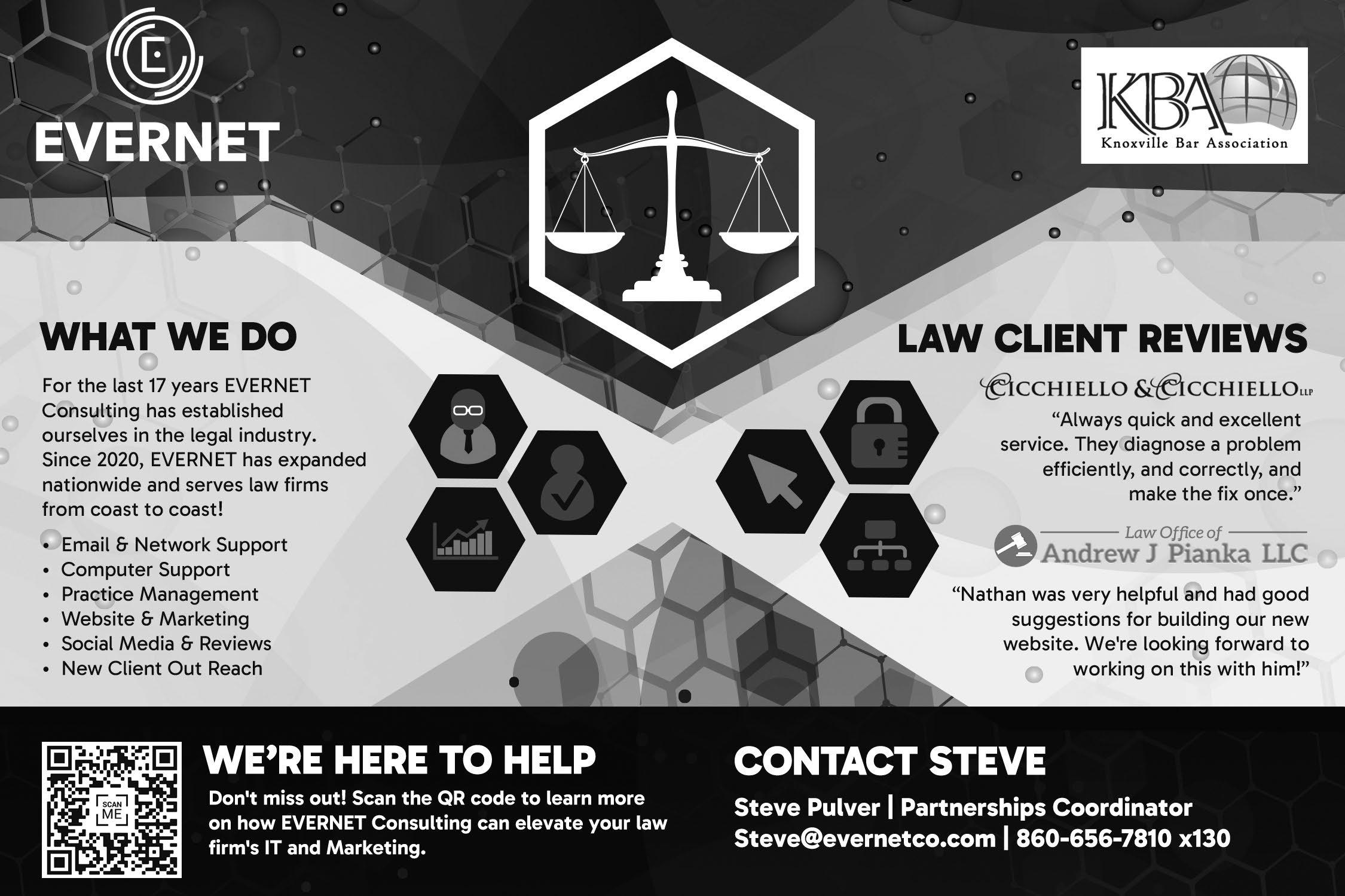
Jury instructions are a pivotal part of any trial. The grant or denial of a certain instruction can be the linchpin in successfully prevailing at trial. Additionally, erroneous and improperly omitted instructions can be the catalyst for an unfavorable jury verdict. In the case of an error in the court’s jury instructions, appealing such a claim can become a compelling basis for appellate relief.
When a civil or criminal trial commences, the court has an obligation to instruct the jury concerning “its duties, its conduct, the order of proceedings, the general nature of the case, and the elementary legal principles that will govern the proceeding.”1 Tennessee Code Annotated2 (Tenn. Code Ann.)
Section 40-18-110(a) mandates that courts instruct the jury on the law of each criminal offense submitted to the jury for consideration, and in civil trials, Tennessee Rule of Civil Procedure3 (Tenn. R. Civ. P.) 51.03 mandates that courts provide a complete charge of the applicable law to the jury but provides courts with the discretion to deliver jury instructions before or after closing arguments. In both criminal and civil trials,the court has the discretion to instruct the jury either before or after closing arguments and to provide additional instructions after closing arguments.4 All requested instructions should be submitted before the close of evidence or “at such earlier time during the trial as the court reasonably directs.”5 The court has the discretion to “entertain requests for instructions at any time before the jury retires to consider its verdict.”6 The court is required to provide the parties the opportunity to object to erroneous or omitted requested instructions outside the presence of the jury after the jury has been instructed.7 However, counsel’s failure to object at this stage of trial does not bar raising a jury instruction issue in a motion for new trial.8
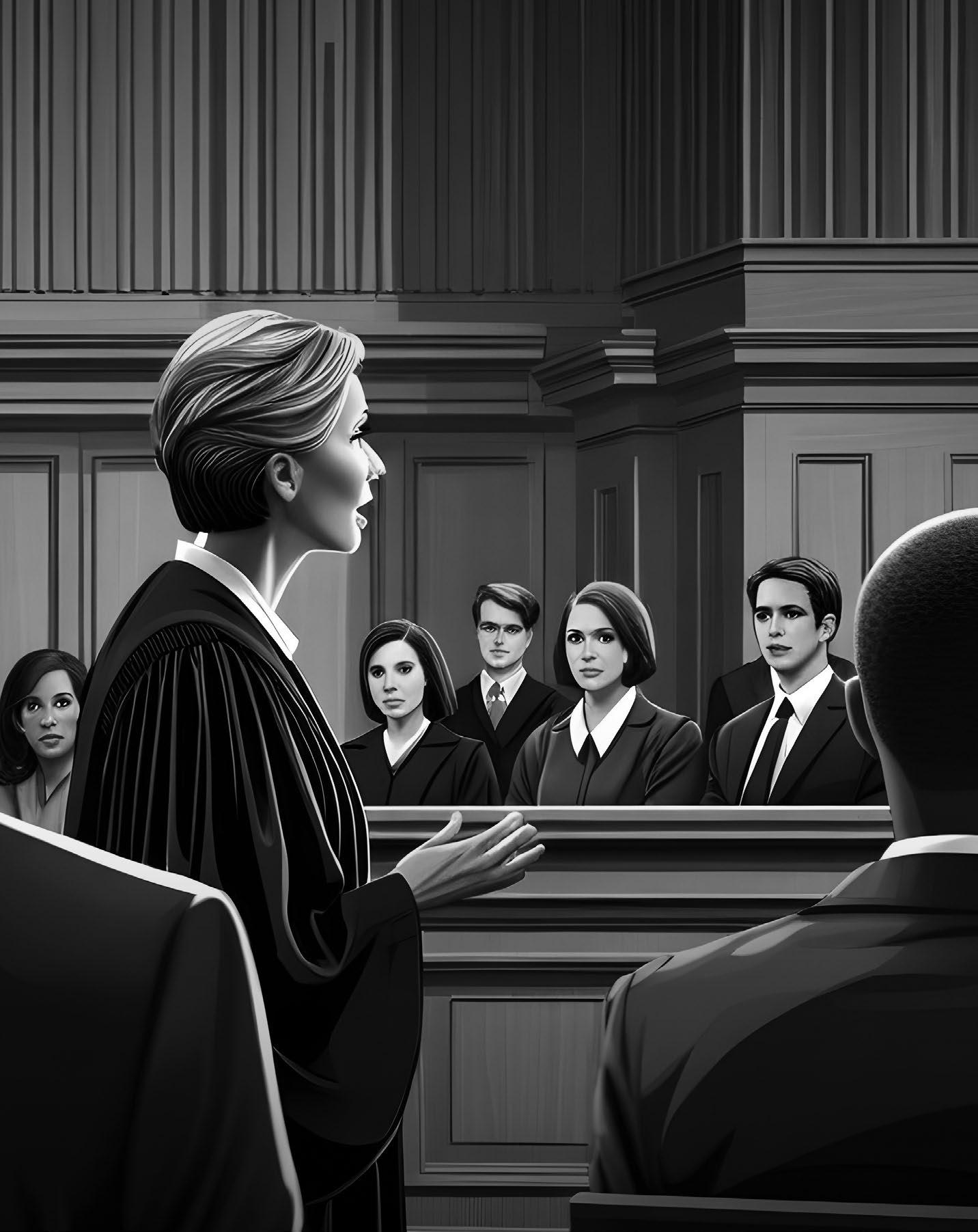
on lesser-included offenses in writing. If trial counsel fails to submit a written request for an instruction on a lesser-included offense, an issue involving only an oral request will be waived on appeal.11 The Tennessee Supreme Court held that failure to comply with Tenn. Code Ann. § 40-18-110(c)’s requirement results in waiver of the jury instruction claim.12 In all felony cases, the court is required to reduce all instructions to writing and to submit the written instructions to the jury for use during deliberations.13
In civil cases, counsel should be cognizant that it is their duty to request that jury instructions be reduced to writing before the judge instructs the jury14 and that “[t] he proper time for making such a request to the trial court . . . would still be before the charge is delivered to the jury . . .[.] This is the only logical construction, as to allow such a request to be made after the jury has begun deliberations would result in undue delay and interruption of the deliberation process.”15 Absent a request, the trial court is not “required to provide a written copy of their instructions to the jury.”16 Prior to filing a motion for new trial, it is imperative that counsel submit interrogatories to the jury to preserve any alternative theory the jury found the defendant liable through if such theories are implicated in the case.17
Failure to submit adequate interrogatories may leave the appellate record inadequate for the appellate court to grant relief on such issues.18
In criminal cases, the court is required to inform either party of its decision for their requests prior to their closing argument.9 The court has the permissive power to instruct juries on lesser-included offenses.10 However, counsel should endeavor to submit any requests for instructions
Tennessee Rule of Appellate Procedure (Tenn. R. App. P.) stipulates, “An appeal as of right may be taken . . . [p]rovided, however, that in all cases tried by a jury, no issue presented for review shall be predicated upon . . . jury instructions granted or refused . . . unless the same was specifically stated in a motion for a new trial; otherwise such issues will be treated as waived.”19 Although, any prior failure to object to an erroneous or omitted instruction may not prejudice the party filing the motion for new trial.20 There is a split in reported opinions of the Tennessee Court of Appeals between Grandstaff v. Hawks21, which held that the defendant did not waive his erroneous jury instruction claim
when he failed to object to the instruction at trial but did raise the claim in his motion for new trial, and Buckley v. Elephant Sanctuary in Tennessee,22 which held that the petitioner waived review of its omitted jury instruction claim when the party did not contemporaneously object to the omitted instruction and first raised its claim in their motion for new trial. Failure to include a jury instruction issue in the motion will render the issue waived on appeal.23 If a jury instruction claim is waived due to the failure to include the claim in the motion for new trial, an appellate court is not required to act,24 but “an appellate court may consider an error that has affected the substantial rights of a party at any time, even though the error was not raised in the motion for a new trial or assigned as error on appeal.”25 In criminal cases, consideration of the issue is waived unless the party is able to satisfy the stringent five-factor test for plain error.26 The test for plain error requires the “appellate courts consider five factors: (a) the record must clearly establish what occurred in the trial court; (b) a clear and unequivocal rule of law must have been breached; (c) a substantial right of the accused must have been adversely affected; (d) the accused did not waive the issue for tactical reasons; and (e) consideration of the error is [‘]necessary to do substantial justice[’].”27 However, failure to preserve the instructions in the appellate record will most likely result in waiver of the issue based upon failure to present a full and complete record for review.28 Generally, in criminal cases, a transcript of the jury instructions that was read to the jury is required for appellate review.29
Issues related to erroneous jury instructions involve mixed questions of law and fact, and alleged erroneous instructions are reviewed de novo without a presumption of correctness.30 Relief will not be granted for an erroneous instruction unless the charge, considered as a whole, failed to submit the legal issues fairly or misled the jury regarding the relevant law.31
Overall, Tennessee jury instruction rules widely mirror one another between the civil and criminal dichotomy. However, the few differences between the different rules and jurisprudence should be at the forefront of the minds of litigators. Attention to these details can be the difference between waiver or adjudication of a jury instruction claim on the merits. Hopefully, with this article in mind, Tennessee lawyers will be able to navigate the nuances of preserving jury instruction claims for appellate review.
1 Tenn. R. Civ. P. 51.03(1); Tenn. R. Crim. P. 30(d)(1).
2 Tenn. Code. Ann. § 40-18-110(a).
3 Tenn. R. Civ. P. 51.03.
4 Tenn. R. Civ. P. 51.03(2); Tenn. R. Crim. P. 30(d)(2).
5 Tenn. R. Crim. P. 30(a)(1); Tenn. R. Civ. P. 51.01.
6 Tenn. R. Crim. P. 30(a)(1); Tenn. R. Civ. P. 51.01.
7 Tenn. R. Crim. P. 30(b); Tenn. R. Civ. P. 51.02.
8 Tenn. R. Crim. P. 30(b); Tenn. R. Civ. P. 51.02.
9 Tenn. R. Crim. P. 30(a)(2).
10 Tenn. Code. Ann. § 40-18-110(a).
11 Id. § 40-18-110(c).
12 State v. Martin, 505 S.W.3d 492, 503 (Tenn. 2016).
13 Tenn. R. Crim. P. 30(c).
14 Tenn. Code. Ann. § 20-9-501.
15 See Burchfield v. Renfree, No. E2012-01582-COA-R3CV, 2013 WL 5676268, *17 (Tenn. Ct. App. Oct. 18, 2013).
16 Siler v. Scott, 591 S.W.3d 84, 115 (Tenn. Ct. App. 2019).
17 Tenn. R. Civ. P. 49.02.
By: Jake Arning Administrative Law Clerk Tennessee Court of Criminal Appeals
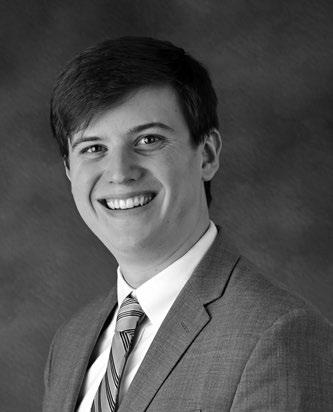
18 Puga v. Scarlett, No. M2008-00289-COA-R3-CV, 2008 WL 5272487, *2 (Tenn. Ct. App. Dec. 16, 2008) (denying relief, in part, due to the defendant’s failure to establish through interrogatories which theory of liability that the defendant was found liable under).
19 Tenn. R. App. P. 3
20 Tenn. R. Crim. P. 30(b); Tenn. R. Civ. P. 51.02.
21 See Grandstaff v. Hawks, 36 S.W.3d 482, 489 (Tenn. Ct. App. 2000).
22 See Buckley v. Elephant Sanctuary in Tenn., 639 S.W.3d 38,61 (Tenn. Ct. App. 2021).
23 Tenn. R. App. P. 3; see State v. Faulkner, 154 S.W.3d 48, 58 (Tenn. 2005) (holding that the defendant waived review of his jury instruction claim by not raising the claim in any of his motions for new trial).
24 Tenn. R. App. P. 36(a) (“Nothing in this rule shall be construed as requiring relief be granted to a party responsible for an error or who failed to take whatever actions was reasonably available to prevent or nullify the harmful effect of an error.”).
25 Tenn. R. App. P. 36(b); see also McLemore ex rel. McLemore v. Elizabethton Med. Inv’rs, Ltd. P’ship, 389 S.W.3d 764, 792 (Tenn. Ct. App. 2012) (overviewing the steps for reviewing an otherwise waived jury instruction claim).
26 State v. Faulkner, 154 S.W.3d 48, 58 (Tenn. 2005).
27 Id.
28 Tenn. R. App. P. 24(a); see State v. Brooks, No. W2019-01802-CCA-R3-CD, 2020 WL 7252035, *8 (Tenn. Crim. App. Dec. 9, 2020).
29 State v. Bonham, 7 S.W.3d 87, 89 (Tenn. Crim. App. 1999).
30 State v. Smith, 492 S.W.3d 224, 245 (Tenn. 2016).
31 State v. Faulkner, 154 S.W.3d 48, 58 (Tenn. 2005).
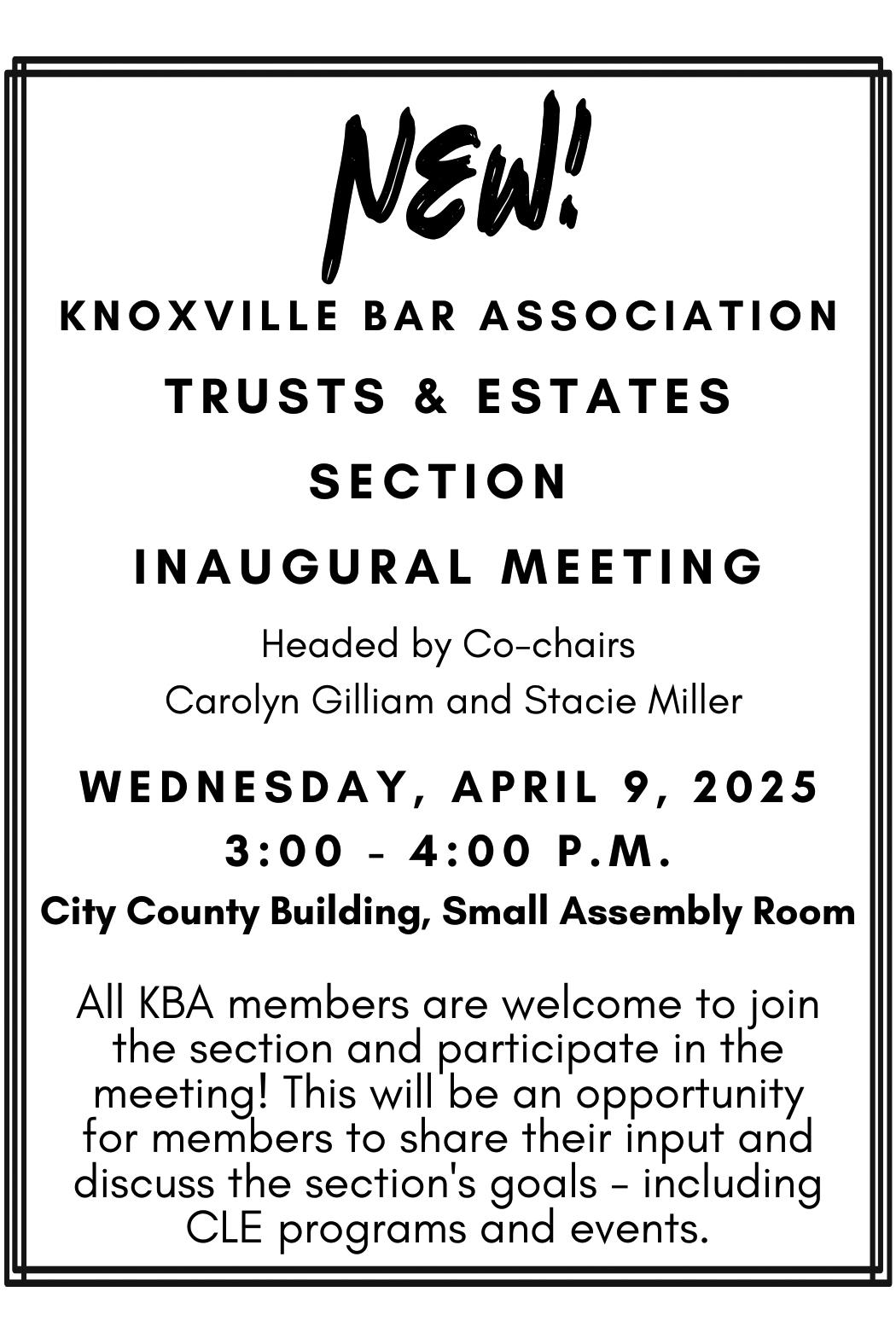

By: Grant Williamson Bradley Arant Boult Cummings LLP
One thing that I hope no 21st century lawyer ever forgets is the importance of getting your boots on the ground (so to speak). As fun, exciting, and, dare I say, sexy it is to talk about the technological advances that lawyers can take advantage of to improve their practices today—artificial intelligence being the most commonly discussed—there is nothing that will ever be able to replace the experience of physically putting yourself into a transaction. (I say transaction because I am a transactional attorney, but the same is obviously true for litigation attorneys and all that they do). Whenever I speak with someone who is considering law school, especially someone who is considering whether to go straight from undergrad to law school, one thing I always mention is that the people who did the best in my law school class—I am measuring “best” not in terms of class ranking and GPA as law schools do, but rather as those who navigated law school in a way that allowed them to be immediately productive and successful once they started actually being lawyers after graduation and that one big test over the summer—were the people who worked between undergrad and law school or who at least had significant work experience during undergrad. The reason these people were so successful is because they had actually experienced the type of legal work they would ultimately be doing not just as a hypothetical but as a real, physical thing. Object permanence is important for baby lawyers too.
I recently helped a client close on the acquisition and financing of a large apartment complex. Much of the process was familiar: drafting and negotiating a purchase and sale agreement, reviewing title and survey materials, reviewing loan documents, and reviewing closing documents. It would have been easy for me to allow the transaction to move along as a rote reproduction of the issues I always look for in transactions of that size and nature and for me to think of it as some abstract thing that I was checking boxes on. But in high school, I frequently worked at similar apartment communities during the summer, cleaning apartments, delivering notices, and doing whatever tasks the apartment manager felt comfortable giving to a dumb high school boy. Cleaning apartments obviously did not inform how I drafted an indemnity clause in a purchase and sale agreement, but seeing how the apartment community was run day to day and becoming aware of various little issues that might pop up allowed me to be more thoughtful in how I approached diligence. I began to think about how tenants would be notified of the takeover of the apartment community by a new owner—I had delivered these change of ownership letters for tenants before. Since I had physically been part of this before, I made sure to confirm with the seller and new owner, my client, that the process would be handled, and I reviewed all documentation to ensure that there would not be any issues in the transition. Having been physically on the ground of an apartment community before also allowed me to talk with more expertise, but also
in a more colloquial way, about the nature of the business that my client was purchasing. I was not just a lawyer that was helping my client paper a transaction; I was an invested and knowledgeable partner working with them to make sure that they received the best deal possible and considered all possible issues facing their purchase.
With Zoom and Microsoft Teams, it is extremely easy to work on deals all over the country without ever stepping foot out of your home office. I am grateful for that reality! It has allowed me to work on unbelievable deals without having to move away from Knoxville or constantly travel and be away from my wife and two young kids. I also recognize that unless I make the effort to put my boots on the ground every once in a while, I will not be the best attorney I can be for my clients. If every transaction becomes a hypothetical, it is easy for real world concerns and smaller legal issues to fall through the cracks as you IRAC your way through a deal to get the highest test score (and not the best

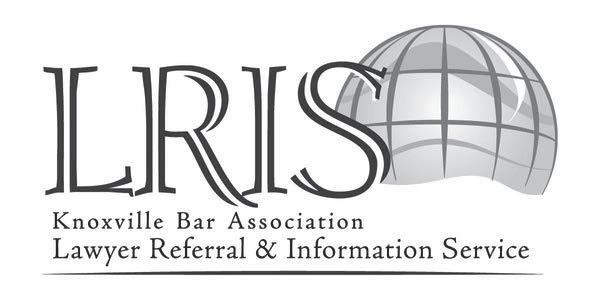
By: Judy M. Cornett University of Tennessee College of Law

In my last column, I addressed the requirements for filing a Motion for Recusal and the grounds for granting recusal. In this column, I will discuss how to appeal the denial of a motion for recusal and will also discuss the two recusals granted during 2024 and the first two months of 2025.
Tennessee Supreme Court Rule 10B, sections 2.01-2.08, provides two avenues for appeal of the denial of a motion to recuse: an accelerated interlocutory appeal as of right, or appeal as of right after entry of the final judgment. In either case, the standard of review is de novo, and the appellate court “should state with particularity the basis for its ruling on the recusal issue.”1 Only an order denying recusal is eligible for the accelerated interlocutory appeal; orders of recusal cannot be appealed in this way.2
To effect an accelerated interlocutory appeal, a “petition for recusal appeal” must be filed within 21 days of entry of the trial court’s order denying recusal.3 This time period is computed according to Tenn. R. App. P. 21(a).4 Unlike Tenn. R. Civ. P. 6.05, Rule 21(a) does not provide a 3-day extension if the order denying recusal is mailed.5 The time limit for filing is jurisdictional and may not be extended by the court.6 An untimely petition deprives the appellate court of jurisdiction over the appeal.7
The petition must be filed with the appellate court having jurisdiction over any appeal of the trial court’s final judgment. It must also be filed with the trial court clerk and must be served on all parties. Additionally, “[i]n civil cases, a bond for costs as required by Tenn. R. App. P. 6 shall be filed with the petition.”8
The petition for recusal appeal must be accompanied by the following:
(1) A copy of the motion for recusal;
(2) A copy of all documents supporting the motion for recusal, including the required affidavit filed in support of the motion;
(3) A copy of the “trial court’s order or opinion ruling on the motion”; and
(4) A copy of “any other parts of the trial court record necessary for determination of the appeal.”9
Because these documents typically constitute the entire record on appeal, the Court of Appeals requires “’meticulous compliance with the provisions of Rule 10B regarding the content of the record. . . .’”10 Omission of any of these attachments is grounds for dismissal of the appeal.11
The petition for recusal appeal must contain the following:
(a) A statement of the issues presented for review;
(b) A statement of the facts, setting forth the facts relevant to the issues presented for review;
(c) An argument, setting forth the contentions of the appellant with respect to the issues presented, and the reasons therefor, including the reasons why the contentions require appellate
relief, with citations to the authorities; and
(d) A short conclusion, stating the precise relief sought.12
Omission of these components of the petition can result in dismissal of the appeal.13
Rule 10B permits the court to act summarily on the appeal, without requiring an answer, further briefing, or oral argument.14 The court shall decide the appeal on an “expedited basis,” and once the court renders its decision, a motion for rehearing pursuant to Tenn. R. App. P. 39 is not permitted.15 Filing a petition for recusal appeal does not automatically stay proceedings in the trial court, although a stay may be entered by either the trial court or the appellate court on motion or sua sponte.16 Rule 10B also provides for an accelerated application for permission to appeal to the Tennessee Supreme Court. The requirements for the application mirror those for the interlocutory recusal appeal, and the Rule expressly provides that Tenn. R. App. P. 11 does not apply to the accelerated application for permission to appeal.17
Because of the high standard for recusal, discussed in my last column, and the stringent requirements for appeal, it is rare for a recusal appeal to succeed. However, in two 2024 cases, the courts of appeals ordered recusal of a trial judge. In State v. Fair, 18 there was no motion for recusal; atypically, the recusal issue was first raised on appeal from a sentencing hearing. After the defendant pled guilty to voluntary manslaughter, the trial judge heard proof relating to judicial diversion and probation. After a series of testy exchanges with defense counsel, the judge orally imposed a sentence of six months’ imprisonment. When defense counsel asked the judge to set bond pending appeal, the judge increased the sentence to one year’s imprisonment and stated, “You keep talking, [defense counsel], it’s going to keep getting worse.”19 On appeal, the defendant argued that the trial judge should be recused for bias, shown by her punishment of the defendant for seeking bond pending appeal. The Court of Criminal Appeals agreed. Applying the standard in Rule of Judicial Conduct 2.11(A), the court found that the judge’s action created “more than a reasonable basis for this court to question the trial court’s impartiality in this case.”20 The court reversed, vacated the sentence, and remanded for re-sentencing before a different judge.21
In Shelby County v. Delinquent Taxpayers 2021, 22 the Court of Appeals reversed the denial of a recusal motion on the basis of the Chancellor’s “pervasive bias.”23 There, the Chancellor disagreed with the assignment to her of Shelby County’s delinquent personal property tax suit and emailed colleagues that “[t]his is a blatant disrespect of my title and my authority.”24 When the Chancellor dismissed the tax suit sua sponte, the Shelby County Attorney filed a motion to alter or amend. The Chancellor refused to set the motion for a hearing. When the County Attorney offered to file a motion to set the motion for hearing, to be heard “’on the regular Friday Motion docket,’” the Chancellor stated that she “’would strike it from the calendar.’”25 Subsequently, the County
continued on page 20
Plan now to attend the Barristers monthly meet-up on Wednesday, March 12, starting at 5:30 pm (note the time change) at The Firefly, the outdoor patio at the Hilton, located at 501 W. Church Avenue, Knoxville. Social time starts at 5:00 pm. All Barristers members are invited to attend, meet fellow attorneys, and learn about upcoming Barristers events.
The Barristers Constitution Day & School Outreach Committee is accepting nominations for the annual Law & Liberty Award, which will be announced at the Law Day Luncheon on April 30. You can nominate someone by visiting the Barristers Constitution Day Committee page. The deadline for nominations is April 8, 2025. Nominees do not have to be attorneys to qualify for the Law and Liberty Award. The award may be given posthumously.
Consider someone who:
• fostered and maintained good relationships between the legal profession and the community
• promoted and advanced a better understanding of the law and legal process in the non-legal community
• demonstrated and encouraged an abiding respect for the rule of law, set an example of good citizenship, stimulated a sense of civic responsibility, or otherwise contributed to the improvement of the legal profession in our community
• maintains high standards of professional integrity and ethical conduct and demonstrates respect of personal, political, civil, and religious liberties
The Barristers Diversity Committee has created a scholarship fund to help with travel and lodging costs for diverse students who are invited to attend preview days hosted by the local law schools. Members are asked to make a donation to help ensure that one student, who may not otherwise be able to afford to visit a law school in Knoxville prior to their enrollment, is able to attend a preview day.
If you have questions, please reach out to Mariel Bough (mariel.bough@ verasafe.com) or Grant Williamson (gwilliamson@bradley.com) for more information on how your donation will be used, or for more ways to get involved with the Barristers Diversity Committee’s efforts to make the Knoxville Bar Association a more inclusive and diverse organization. Information on how to donate online can be found on the KBA website on the Barristers Diversity Committee page.
The Volunteer Breakfast is a recurring event on the 4th Thursday of each month at 6:15 a.m. at the Volunteer Ministry Center, located at 511 N. Broadway, Knoxville, Tennessee. The Barristers Volunteer Breakfast Committee always needs volunteers to serve food or sponsor. The cost is $150 for sponsoring, and we need 4-5 volunteers. If you are unable to fund the breakfast, the Barristers will subsidize the cost of the breakfast. We meet at 6:15 a.m. and serve breakfast to approximately 30-40 individuals, generally leaving the site around 7:30 a.m. It’s a great way to serve the community! Please contact either Miranda Goodwin at mirandaegoodwin@gmail.com or Bridget Pyman at bpyman@ arnettbaker.com with any questions and/or about volunteering.
Attorney sought the advice of a senior judge in Shelby County, who agreed to speak to the Chancellor. Shortly thereafter, the Chancellor confronted the County Attorney in a “common area of the clerk’s office,” expressing her anger, and telling the County Attorney to “‘Bring it’” and to tell his boss to “‘Bring it.’”26 She also accused the County Attorney of speaking to the senior judge “‘because [the judge] is a black woman’” and of threatening to file a complaint against the Chancellor.27
The County Attorney filed a motion to recuse, which was denied. The Court of Appeals reversed, finding that the Chancellor’s actions here went beyond “mere dissatisfaction, annoyance, or anger toward counsel, the parties, and this case.”28 The Chancellor did not deny that she made the statements attributed to her during the public confrontation. Furthermore, her refusal to set the motion to alter or amend for hearing and her threat to strike a written motion for a hearing date from the calendar constituted “inexplicable actions” that “‘reflect an utter incapacity to be fair.’”29
The bottom line is this: If the trial court denies your motion for recusal, you can appeal immediately, but your appeal has no chance of success unless you follow the requirements of Tenn. Sup. Ct. 10B meticulously and unless the trial judge has engaged in conduct meeting the high bar for recusal.
1 Tenn. Sup. Ct. R. 10B, § 2.01.
2 Stoneybrooke Investors, LLC v. McCurry, 2024 WL 370103, at *1 (Tenn. Ct. App. Jan. 29, 2024).
3 Tenn. Sup. Ct. R. 10B, § 2.02
4 Tenn. R. App. P. 21(a) reads as follows:
In computing any period of time prescribed or allowed by these rules, the date of the act, event, or default after which the designated period of time begins to run shall not be included. The last day of the period so computed shall be included unless it is a Saturday, a Sunday, or a legal holiday as defined in Tenn. Code Ann.
§ 15-1-101, or, when the act to be done is the filing of a paper in court, a day on which the office of the court clerk is closed or on which weather or other conditions have made the office of the court clerk inaccessible, in which event the period runs until the end of the next day which is not one of the aforementioned days. When the period of time prescribed or allowed is less than 7 days, intermediate Saturdays, Sundays and legal holidays shall be excluded from the computation.
5 Larry E. Parrish, P.C. v. Strong, 2024 WL 3886224, at *2-*3 (Tenn. Ct. App. Aug. 21, 2024).
6 Tenn. Sup. Ct. R. 10B, § 2.08.
7 See, e.g., Jordan v. Jordan, 2024 WL 5135834, at *1-*2 (Tenn. Ct. App. Dec. 17, 2024).
8 Tenn. Sup. Ct. R. 10B, § 2.02.
9 Id. § 2.03.
10 Jordan, supra note 7, at *1 quoting Johnston v. Johnston, 2015 WL 739606, at *2 (Tenn. Ct. App. Feb. 20, 2015).
11 See., e.g., Larry E. Parrish, P.C., supra note 5, at *1 (omission of trial court order); Jordan, supra note 7, at *1 (omission of trial court order and affidavit); State ex rel. Franklin v. Finch, 2024 WL 5245290, at *1 (Tenn. Ct. App. Dec. 30, 2024) (memorandum opinion) (omission of trial court order and motion to recuse).
12 Tenn. Sup. Ct. R. 10B, § 2.03.
13 Rantner v. Solomon, 2025 WL 326386, at *3 (Tenn. Ct. App. Jan. 29, 2025).
14 Tenn. Sup. Ct. R. 10B, §§ 2.05-2.06.
15 Id. § 2.06.
16 Id. § 2.04.
17 Id. §§ 2.07-2.08.
18 2024 WL 792011 (Tenn. Crim. App. Feb. 27, 2024).
19 Id. at *6.
20 Id. at *11.
21 Id. at *12.
22 2024 WL 1791754 (Tenn. Ct. App. Apr. 25, 2024)
23 Id. at *7.
24 Id. at *1.
25 Id.
26 Id. at *3.
27 Id
28 Id. at *7.
29 Id. at *8.
By: Jimmy Snodgrass Kramer Rayson LLP Katie Overton Kramer Rayson LLP


An aspect that somehow was not at the forefront of everyone’s mind during the last presidential election was how the results would impact employment lawyers nationwide. While labor and employment is far from the only practice area impacted by changing policies when a new party takes office, there has been a drastic shift in the first month of the new administration.
On February 19, 2025, the EEOC Acting Chair Andrea Lucas announced: “The EEOC is here to protect all workers from unlawful national origin discrimination, including American workers.” Ms. Lucas provided the following examples of “excuses” that employers may use as to why they prefer non-American workers, but which are still in violation of Title VII:
• lower cost labor (whether due to payment under the table to illegal aliens, or exploiting rules around certain visa-holder wage requirements, etc.);
• a workforce that is perceived as more easily exploited, in terms of the group’s lack of knowledge, access, or use of wage and hour protections, antidiscrimination protections, and other legal protections;
• customer or client preference; and
• biased perceptions that foreign workers are more productive or have a better work ethic than American workers.1
The EEOC’s announcement also referenced collaboration with the DOJ and the Department of Homeland Security, indicating that the agencies will share information for enforcement action. For example, employers may see an increase in Form I-9 audits. As another major shift, on January 28, 2025, the EEOC rolled back much of the Biden-administration’s guidance related to gender discrimination and harassment, which had a particular focus on LGBTQ individuals.2
Several commenters have pointed to the timing of the recent settlement by the EEOC with the LeoPalace Guam Corporation as an example of the focus on protecting American workers from national origin discrimination. On February 18, 2025, the EEOC announced that the LeoPalace Resort, a major hotel in Guam, would pay $1,412,500.00 to settle a national origin discrimination lawsuit filed by the EEOC. The suit alleged that LeoPalace provided “non-Japanese employees— including multiple former employees of American national origin—in Guam with less favorable wages, benefits, and terms and conditions of employment compared to employees from Japan who held equal or lesser positions.”3
Title VII makes it unlawful to discriminate against an individual because of their national origin. However, most cases involving national origin discrimination address claims by employees that they were discriminated against because of a perception that they were from outside of the country. Significantly, race and national origin are distinct under Title VII. “‘National origin,’ for purposes of Title VII, includes not just
the country where a person was born, but, ‘more broadly, the country from which his or her ancestors came.’”4 However, “Title VII does not bar discrimination based on citizenship or residency.”5
Claims of national origin discrimination under Title VII are far less common in federal courts within the Sixth Circuit. As a more local example, on December 5, 2014, the EEOC settled a national origin discrimination case in the Western District of Tennessee against two staffing companies for $580,000.00. The EEOC claimed that that the staffing agencies discriminated against four applicants and AfricanAmerican and non-Hispanic applicants by failing to refer those applicants for job placement. Specifically, the EEOC argued that the staffing companies gave specific preference to Hispanic applicants by not requiring background checks and improperly designated them as preferred employees.6
For employers discriminating against Americans based on national origin so that they can pay illegal immigrants under the table, exploit rules around certain visa-holder wage requirements, and/or exploit employees’ ignorance of wage and hour protections as Ms. Lucas suggests, the risk of a Title VII lawsuit is probably the least of their concerns. That level of comfort with violating federal laws, both criminal and civil, brings with it a strong tolerance for the risk of much more severe penalties than what Title VII provides.
However, for the above-board employer that simply hires immigrant employees, now is the time to ensure all Form I-9s and other employment records are up to date. Employers will also want to review any employment policies that relate to immigration to ensure there is no language that could be interpreted as discriminating against Americans. This includes interview practices where employers should make sure they avoid asking questions that might reveal national origin or citizenship. For example, employers should avoid asking about a candidate’s birthplace, whether the candidate is a citizen, or a candidate’s accent. Of course, it is still permissible to ask if the candidate can legally work in the U.S., if they require sponsorship for an employment visa, and about the candidate’s fluency in a particular language if required for the position.
Finally, employers, particularly those that hire predominately immigrant workers like staffing agencies, can expect an increased focus on cases involving workers from outside the United States. However, because national origin claims are rarely brought, there is not a wide body of case law employers can rely on. This is especially true with respect to claims based on an employee’s status as an American citizen. With such little guidance, it will be interesting to see how courts respond to these potential claims.

By: Melissa B. Carrasco Carrasco Trump, PLLC
My Grandpa loved wrastlin.’ He and my Grandma were born, lived, and died within a 2-mile radius in Rowan County, North Carolina. It was dairy country, and their house was a two-story log cabin, built in the mid-1800s by my great-grandfather. They didn’t have electricity or indoor plumbing until the 1950s, and “electricity” generally consisted of a single lightbulb hanging from the ceiling of each room. “Indoor plumbing” was a single bathroom (with metal shower) added to the house in the 50s, and an equally small kitchen with a sink big enough to rinse a mess of collard greens and two chickens. It was the best place to be a grandkid.
But they did have a television in the middle of the front room – the console type that could send a person to the hospital if it tipped over. And that television was connected to an antenna attached to a metal pole on the roof with a cable that ran through the wall and attached to a dial sitting on top of the TV. If we managed to turn the antenna just right, we could pick up one of the stations out of Charlotte or Winston Salem, and we were right there in the ring. The picture quality was as gritty as the heroes and villains on the screen.
My Grandpa was a true believer. If you ever tried to tell him that what he was seeing was scripted, he would have put you out to the garden to pick okra. Kayfabe1 was strong in rural North Carolina at that time . . . and if my Grandpa believed, I did too.
of those teachers who makes things stick in your head. What you may not have known is that he is a long-time fan of professional wrestling (which I quickly learned sitting one person away from him during the wrestling match at the CLE). Pro tip: there may be an “assumption of risk” argument to be made if you are within arms’ length of a fan at a wrestling match.
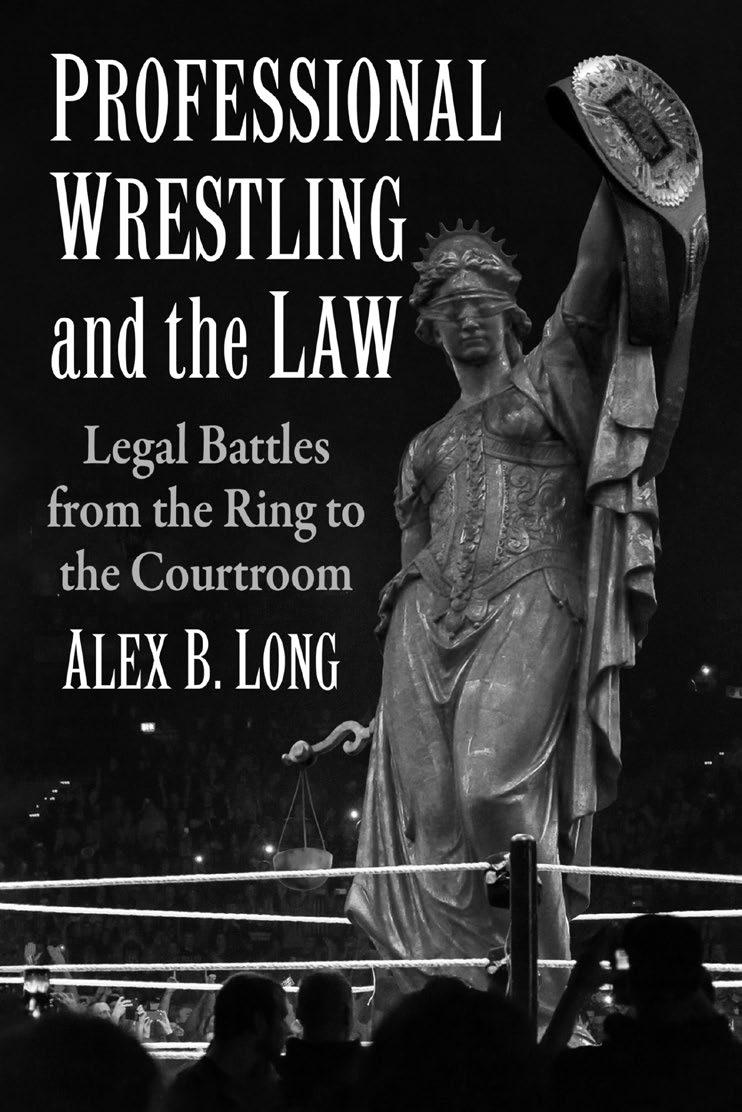
So, last November, I was on the third row at the Golden Gloves Arena in Chilhowee Park for the KBA’s Professional Wrestling and the Law in Knoxville CLE. Pro-tip: the front row is somewhat dangerous at a wrestling match, and apparently, there is an “assumption of risk” argument to be made if you get hit by flying debris or a flying person at a professional wrestling match (see Chapter 3). If you didn’t attend, there isn’t much I can do to help you visualize it. But what I can do is recommend that you pick up a copy of the book that I bought that night: Professional Wrestling and the Law, Legal Battles from the Ring to the Courtroom, signed by the author, Alex B. Long.
If the author’s name sounds familiar, then you probably graduated from the UT College of Law OR have had the good sense to read DICTA’s monthly Schooled in Ethics column. Either way, you probably already knew that Professor Long is a scholar, researcher, writer, and one
continued from page 21
2 January 28, 2025 EEOC Press Release, “Removing Gender Ideology and Restoring the EEOC’s Role of Protecting Women in the Workplace.”
3 February 18, 2025 EEOC Press Release, “LeoPalace Resort to Pay Over $1.4 Million in EEOC National Origin Discrimination Lawsuit.”
4 Kostic v. United Parcel Serv., Inc., 532 F. Supp. 3d 513, 531–32 (M.D. Tenn. 2021) (internal quotations omitted).
His book is the perfect showcase for all these attributes. It is a short read – only 219 pages long, but it is packed with content. This is because Professor Long does what others have not. The book is not merely a look at professional wrestling itself. It isn’t just a discussion of some very interesting legal battles that have involved professional wrestlers, wrestling associations (dare we call it the wrestling Mafia?), and wrestling promoters over the years. It puts all of these in the context of the legal principles Professor Long or other law professors tried to teach us when we were in law school.
From 1L basics, like negligence, battery, breach of contract, defamation, and the doctrine of unclean hands, to civil procedure (think statutes of limitation and statutes of repose), to more complex topics such as the battles to combat race and sex discrimination, a number of memorable antitrust wars, and the most difficult question of whether a professional wrestler is or should be classified as an employee or independent contractor, Professional Wrestling and the Law is, hands down, the most interesting legal refresher course I have ever read. And the best part is that a decent portion of the book stays close to home, telling the stories of the legal battles of the Knoxville Five, the Tennessee Stud, and Knox County’s own NWA Southeastern Wrestling, Inc.
With excerpts of pleadings and depositions, photographs and playbills, and plenty of very interesting footnotes and end notes, there is more than enough content packed into these 219 pages to keep each reader occupied – both legal and non-legal. In fact, my copy has gone to my dad, whose dad (my Grandpa) most definitely raised him right.
So, pick up a copy, and read every word – including the footnotes. You will get sucked in, but that is a risk you definitely want to assume.
1 If you don’t know what this word means, don’t look it up. Buy the book. The explanation and examples are much more interesting.
5 See Norbuta v. Loctite Corp., 1 F. App’x 305, 311 (6th Cir. 2001) (testimony regarding a manager’s preference for Canadian citizens was not direct evidence of national origin discrimination).
6 December 5, 2014 EEOC Press Release, “New Koosharem and Real Time Staffing to Pay $580,000 to Settle EEOC Racial Discrimination Suit.”



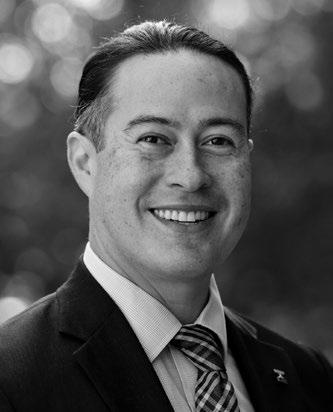
By: Carlos A. Yunsan University of Tennessee College of Law
Editor’s note: With pride, we reprint here the November 2024 President’s Message authored by KBA Immediate Past President Carlos A. Yunsan. This column was one of only two selected from a national pool of applicants to be honorably mentioned at the National Conference of Bar President’s recent annual meeting. Please enjoy (again) this 2024 President’s Message with our sincere congratulations to Carlos.
Where did the year go? My son still has an unopened Lego set from last Christmas, and yet we have now reached November. A month traditionally—and rightfully—filled with gratitude and Thanksgiving, this November is also a reminder of the personal right and responsibility that those of us (of voting age) share to steer the future of our country toward “a more perfect Union.”1 So I write this month both thankful for the promise of our nation and sobered by the never-ending task of contributing toward manifesting that reality— if not for myself, at least for my children and theirs: “E Pluribus Unum.”2
I proudly became a U.S. citizen on July 14, 2016. Retired U.S. District Judge Harry S. Mattice, Jr. presided over the naturalization ceremony, which was held at the U.S Courthouse in Chattanooga, Tennessee. Moments before we took the Oath of Allegiance,3 Judge Mattice spoke warmly and forcefully about the journey each of us had taken and the choice we made to become U.S. citizens. I remember, as if yesterday, receiving my U.S. flag lapel pin and pocket Constitution. Twenty-two years after arriving at Maryville College to learn English— years during which I got married, got my first “real” job, became a Triple Vol,4 and began practicing law—I, too, could call this country my own. I was now able to vote and help determine the laws and policies that govern the country. And vote I did for the first time on November 8, 2016!
Disconcertingly, over the last several years (some argue decades in the making), our country’s political rhetoric has moved away from matters of policy to matters of division and—increasingly—hate. It should go without saying that if we are to continue moving toward a more perfect Union, allowing hateful words to define our national discourse will not get us closer to that goal. And while this type of speech seems to have recently become the norm rather than the exception, what is most concerning to me is that many of us, while initially outraged by this unbecoming paradigm shift, have now become so desensitized to it that we have either accepted it as inevitable or even adopted it for ourselves.
The problem with hateful speech is, of course, not only that it creates enmity within communities but it also often translates into action. Hate crimes in our country have been trending up for the last decade or so. In fact, they have reached an all-time high since the FBI began collecting relevant data in 1991.5 In my view, all this “hate talk” tears at the fabric of who we are as a nation far more than any foreign war, tax policy, or pandemic. In other words, I consider it one of our most pressing and now pervasive domestic problems.
As citizens, we have the awesome responsibility of supporting and defending the Constitution against all enemies, foreign and domestic. That responsibility to support the Constitution is also part of the oath
taken by every attorney licensed in this state.6 As lawyers, we are wellequipped to discharge this duty in ways that many fellow citizens are not. Moreover, many members of our bar serve in positions of leadership in our community (i.e., others are paying attention to our actions or inaction). Ergo, our duty is heightened. But what can we concretely do?
I ask you to consider a simple and straightforward remedy: Speak out for the values you cherish as a citizen and as a lawyer. I’m not talking about political candidates or parties but about your values, your principles, your judgment of what is important in life—as a citizen of this great nation and as a human being. And I’m most certainly not talking about infringing upon speech protected by the First Amendment. (In any case, speech protected from governmental curtailment is not necessarily free of consequence in the marketplace of ideas.) But if we find this new normal of hate talk incompatible with our values, we don’t have to sit around and do nothing. We can openly and forcefully express our penchant for respectful rhetoric, we can model how to disagree constructively, we can seek understanding without letting go of our deeply-held beliefs, we can even mobilize and bring people together to espouse these values. Didn’t we learn a lot of this in law school?
I am proud that our bar association is known across the state and beyond for its collegiality and the support it offers to its members regardless of background. As in any other setting, there is still plenty of work to do, but the KBA’s leadership, programs, and, ultimately, its members routinely go the extra mile to live out the promise of “Out of many, one.” And for that, I am deeply grateful.
1 U.S. Const. pmbl.
2 Latin for “Out of many, one” and traditional motto of the United States of America. Smithsonian Libraries and Archives, E Pluribus Unum. from A gazetteer of the United States of America, The Smithsonian Institution, https://www.si.edu/object/epluribus-unum-gazetteer-united-states-america%3Asilgoi_68301. The motto was first suggested on July 4, 1776, the day the country’s Declaration of Independence was signed. Id.
3 Not to be confused with the Pledge of Allegiance, the Oath of Allegiance requires naturalized citizens to “support and defend the Constitution and laws of the United States of America against all enemies, foreign and domestic.” Naturalization Oath of Allegiance to the United States of America, U.S. Citizenship and Immigration Services, https://www.uscis.gov/citizenship/learn-about-citizenship/thenaturalization-interview-and-test/naturalization-oath-of-allegiance-to-the-unitedstates-of-america.
4 That’s what they call you when you get your bachelor’s, master’s, and law degrees from the University of Tennessee at Knoxville.
5 Sara Chernikoff, One year later: Anti-Jewish and anti-Muslim hate incidents spike since Oct. 7 attacks, USA Today (Oct. 7, 2024, 7:01 PM), https://www. usatoday.com/story/graphics/2024/10/07/hate-crimes-grow-in-us-since-oct-7attacks/75501456007/.
6 See Tenn. Sup. Ct. R. 6 (“I, ___________, do solemnly swear or affirm that I will support the Constitution of the United States and the Constitution of the State of Tennessee.”).
By: Sarah M. Booher Tennessee Department of Human Services
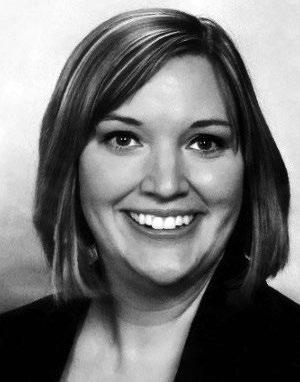
1 Well, it’s March again. In addition to the joys of basketball brackets, it’s also my birthday – and Lent. So if you are, like me, forgetting about Jesus’s miraculous conversion of water into wine for 40 days, here’s a great list of ways to break your fast (and belatedly celebrate my arrival into this world) come Easter Sunday. On the other hand, if you aren’t into ashy foreheads and the shock of rocks no longer in front of caves, happy Wednesday! Cheers!
10. Attorney Privilege2 - Combine 2 oz bourbon, ½ oz Orgeat, and 2 dashes Angostura bitters in a mixing glass and stir with ice cubes. Serve in a pre-chilled Nick & Nora coupe glass and garnish with a lemon twist. I personally don’t feel privileged to feel the burn of bourbon in my mouth, but I am happy to pass it along to those of you who do.
9. Too Legit to Acquit3 - Mix 2 oz. coffee (slightly cooled), 1 oz. vodka, ½ oz. coffee liqueur, and ½ oz. Irish cream in a cocktail shaker. Fill with ice and shake until cold. Serve in a martini glass and garnish with a mint sprig and cacao powder. Coffee and liquor in the same glass are proof that God loves us and wants us to be happy.4
8. Reasonable Doubt5 - Mix 2 oz. dark rum and ½ oz fresh-squeezed lime juice in a cocktail shaker filled with ice. Shake and stir in 3 oz. chilled ginger beer. Serve on the rocks in a goblet. Skewer 1 candied ginger slice and 1 lime wheel. Garnish with the skewer and a mint sprig. Does drinking one of these fill us with, or take away, reasonable doubt? Will we find ourselves to be more or less like the apostle Thomas after consumption?
4. Lagunitas Undercover Investigation Shut-Down Ale7 – In 2005, eight undercover ABC agents busted the California brewing company under a 1933 law called Disorderly House – establishments that serve alcohol can be shut down if someone, among other much worse offenses, smokes a joint. Lagunitas used the 20-day suspension/shutdown to change their bottling line. If you ever get your hands on a bottle, it will read, “We brewed this especially bitter ale in remembrance… WHATEVER, WE’RE STILL HERE.”
3. Buffalo Bill’s Alimony Ale IPA – According to their website, it’s irreconcilably different. First brewed in 1987 for a local customer going through a divorce, this beer sits at 6.8% ABV and is made by America’s first brewpub, located in Hayward, CA.

7. The Oxford Comma6 - Add 2 oz. Beefeater gin, ¾ oz. Dry Vermouth, ½ oz. Green Chartreuse, 1 oz. Maraschino liqueur, 2 dashes celery bitters, and cubed ice into a mixing glass. Stir for 30-45 seconds, strain into a cocktail glass, and garnish with a lemon peel. Years ago, when I was writing the Grammar Grinch article, I devoted a column to the true Oxford Comma. A dapper, dignified, and charming attorney at UT wrote a response to me with a variation of this recipe, and one night I tried my luck with it at the Corner Lounge in Old North Knox. Despite this drink, I still love gin.
6. Larceny Bourbon - Serve neat or on the rocks. I’ll never forget taking a dinner break with a friend the night before the bar exam. As we wandered up to the bar at Stock & Barrel, the first thing I saw was Larceny Bourbon. I instantly started reciting the elements, and I knew I’d be okay. Eventually.
5. Barrister Brewing Company, Owosso, Michigan – Visit this charming establishment where flights come in legal books, there’s a framed black robe on the wall, two of the owners are former prosecutors, salads are pretrials, and sodas are summonses.
2. Christmas Mocktails8 – Sober for Lent or keeping it sober? I see you! Continue your good run by enjoying these refreshing and comforting mocktails. Objection Over-Yuled: 20 fresh mint leaves, 3 tbsp. lime juice, 4 oz. cranberry simple syrup, 4 oz soda water. Garnish with fresh cranberries and lime wheels. Fa Law Law Law Law: 1.5 oz. strong black tea, ¾ oz. fresh lemon juice, ½ oz. simple syrup, ¼ oz. grenadine, ¼ oz. raspberry vinegar. Pour into a rocks glass over ice. Garnish with a lemon wheel.
1. Wines: Anything from 19 Crimes, obviously, where “It’s good to be bad!” Whether you want a seasonal, red, white, or blend, there’s always 19 corks in circulation, one for each of the 19 crimes a person could commit ‘back in the day’ to be sentenced to “punishment by transportation” to Australia. Download their app and enjoy an augmented reality of the criminals on the bottle labels telling you about their lives of crime. Or just grab a bottle of Snoop’s Cali Red and a bottle of Martha Stewart’s Hard Chard and be the hit of the next birthday party you attend. Just make sure they weren’t unlucky enough to be born during Lent.
1 Obviously, know that this article does not reflect the views of TDHS (they’re strictly my own). Don’t drink on the job, make good choices, and if you’re sober for life and ever tempted to not be – call me! The temporary thrill of one fun drink is never worth the consistently hard work of sobriety. I’m proud of you.
2 Erick Castro, Attorney Privilege, ImbIbe mag. (Dec. 12, 2012), https://imbibemagazine. com/recipe/attorney-privilege-recipe/.
3 Legal Ease Cocktails, SOphISTIcaTed WOman mag (Sept. 16, 2021), https:// sophisticatedwoman.com/legal-ease-cocktails/#:~:text=Too%20Legit%20To%20 Acquit&text=Combine%20the%20cooled %20coffee%2C%20vodka,mint%20 sprig%20and%20cacao%20powder.
4 Apologies to Benjamin Franklin. I know he was a beer man.
5 Legal Ease Cocktails. Id.
6 Kendall, Oxford Comma, nOvel nIghTcapS, https://novelnightcaps.com/recipe/oxfordcomma-cocktail/ (last visited March 6, 2025).
7 Blindtigeralehouse, Lagunitas Undercover Shut Down, https://youtube.com/ watch?v=xXAbcAf0BZM (last visited February 27, 2025).
8 Brian Cuban, Legally Mocktail Your Holiday Event, abOve The laW (December 11, 2019).

By: Katie Ogle Tennessee Valley Authority
Many attorneys recall a pivotal moment that led them to the pursuit of law. Others have childhood memories of watching legal dramas unfold on television or of receiving encouragement from friends and family that ultimately led them to become an attorney. Some take this path immediately following college, while others don’t realize this calling until they are well into a first career and choose to either suspend their employment during law school or attend law school part time.
As I meet attorneys throughout life, I have found that no two stories of becoming a lawyer are ever the same, but the motivations of service and advocacy are common themes. For me, I was nearly finished with undergraduate studies to become an elementary school teacher in West Virginia. Through various field placements in rural school systems, I found that a large number of children were served by individualized education plans (IEPs) that implemented accommodations for their identified disabilities. By law, every child’s IEP is reviewed annually, and parents must receive written notice of this meeting and have a right to be present at this meeting. 1 Additionally, a further requirement is that the child’s parent or guardian must be a member of the IEP team that convenes.2
Unfortunately, in many of the cases at the schools I served, a parent wasn’t able to attend due to lack of transportation or the inability to have any time away from their job. Due to scheduling constraints for other members of the team, I saw that in many of these instances, an adult was appointed in loco parentis to represent the best interest of the child. The parents would agree in writing to allow this person to stand in their stead at the meeting. I also realized that for a few children, this adult appointed for them had never even met them, and certainly didn’t know specific accommodations they might require. As a young soon-tobe teacher, eager to advocate for children, I endeavored to fight this injustice headon. I didn’t have any attorneys in my immediate family but had enough extended family and friends in the profession to know that I needed to take the LSAT and begin applying to law schools.
the needs of children and families. I’ll forever remember being sworn into the bar by the Honorable Steven Sword, upon the motion of Laura Metcalf on a sticky warm East Tennessee morning, and then taking my first appointment from Judge Tim Irwin the next day.
As I continued developing litigation skills and taking on more cases, I found myself also becoming more involved in the legal community. Through the Knoxville Bar Association and joining local non-profit boards, I found many avenues to advocate for children and assist families step-by-step through legally complex issues.
It was during a recent meeting for one of these non-profit boards at which I was recognized for ten years of service. “Ten years?” I thought, “that means I’ve been practicing for close to fifteen years. How did that happen?”
In that moment, I paused to reflect on all that had unfolded in those fifteen years as this non-profit had grown from a daytime rehabilitation support program to a fully staffed group housing operation. I was thankful to think that my life and service to others in the community had bloomed in a similar way. During my time in service to this organization, I had also experienced the opportunity to shift the service orientation of my career. Rather than continuing as the day-to-day legal advisor to those requiring support with family dynamics and strife, I was able to continue my evolution as a lawyer in the role of a community servant through helping Local Power Companies (LPCs) provide service to the Tennessee Valley through my work at TVA in power customer contracts. In this capacity, I have the opportunity to work with lawyers and non-lawyers every day to bring electricity to the people of the Tennessee Valley.
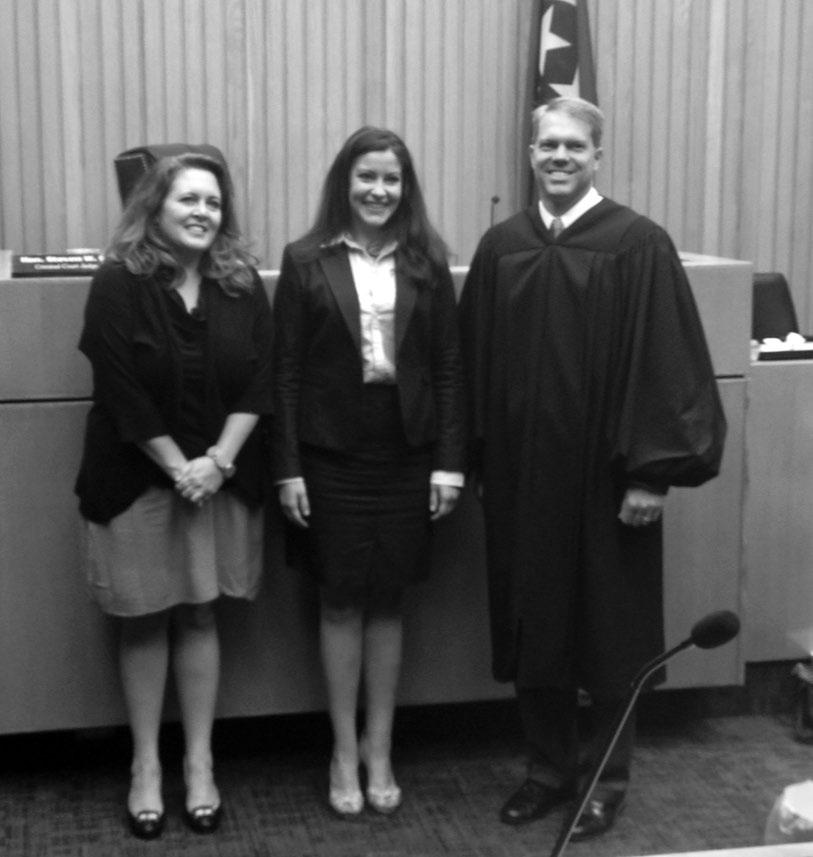
We as attorneys are uniquely positioned to be servants and leaders within our local communities. Whether I’m advocating for a child during his IEP meeting or drafting a power contract to ensure that a small Tennessee town has electricity, I am ever mindful of the privilege we as attorneys have to serve as voices and advisors to those who need us.
After graduating law school and passing the bar, I was lucky enough to land in Knoxville, and I found a welcoming community of attorneys in the family law bar. In asking how I could advocate for children, I quickly learned that there was an entire courthouse devoted to serving
1 34 CFR Subpart D - Subpart D—Evaluations, Eligibility Determinations, Individualized Education Programs, and Educational Placements.
2 Id. at 320-321.
By: Parker Bohne
LMU Duncan School of Law
J.D. Candidate, 2026

Orange Hat Brewing Company in Hardin Valley offers a vibrant and welcoming atmosphere that effortlessly combines modern design with a cozy, community-oriented vibe. The open floor plan is a highlight, allowing guests to easily mingle at bench-style tables or enjoy more intimate settings at high-top tables that are perfect for a date night. The balance of wooden table tops and modern décor gives the space a contemporary feel while maintaining warmth. Those looking for a more laid-back experience can sit back and relax in one of the cozy leather couches gathered around a large TV. If you’re someone who prefers competition over relaxation, there is also a steel-tipped darts gaming area to keep you occupied. No matter what experience you’re looking for, you’ll feel right at home with the huge, lit-up display of the Knoxville downtown skyline on the wall.
The brewery’s large, open-air space is ideal for both relaxing and engaging in activities. Families, friends, and dog lovers alike will appreciate the inviting patio, with room for everyone to enjoy a night under the stars. It’s a dog-friendly spot, both inside and outside of the taproom, making it a perfect destination for pet owners. Orange Hat Brewing Company also fosters a sense of community by hosting events like “Small Business Sunday,” featuring local musicians and vendors, as well as trivia nights, bingo, and LEGO build nights for families. With Spring cornhole and pickleball leagues adding to the fun, there’s no shortage of activities to enjoy throughout the week.

For those seeking a different experience, The Wandery, a nonalcoholic lounge, provides a unique escape with the lounge’s timeless and classic feel. The Wandery is inside the main taproom of Orange Hat, tucked into a corner. They serve your favorite cocktails—with a nonalcoholic twist—along with optional tinctures containing CBD, Delta-8, and Delta-9 hemp-derived extracts. Whether you’re in the mood for a relaxed evening with friends, a family outing, or a fun date night, Orange Hat Brewing Company effortlessly accommodates all with its diverse and lively atmosphere.
The Brews
Orange Hat Brewing Company offers a fantastic selection of beers, with twenty-four taps that cater to a wide range of tastes and preferences. Their lineup includes crowd-pleasers like the Sundrop IPA, with its bold and hoppy flavor, and the Fortune Teller Wheat, which is a light and
refreshing beer that’s perfect for a warm day under the sun. For those who prefer a darker brew, the Oatmeal Stout offers rich and smooth coffee and chocolate notes. If you’re looking for something unique, the Dabble in the Dark is a distinctive, black IPA that blends roasty malts with hoppy bitterness. And for those (like me) who like something fruitier, the Tart Side of the Moon is a to-die-for fruited sour with blackberry, black cherry, and kaffir lime leaf. Whether you prefer crisp and clean lagers, juicy IPAs, or something with a bit more depth, Orange Hat’s diverse selection ensures there’s something for everyone.

Orange Hat Brewing Company doesn’t have its own kitchen, but what they lack in a food menu, they make up for in collaborating with a huge lineup of local food trucks. Orange Hat hosts “rotating food trucks” throughout the week. Though a food truck is there daily, the exact food truck and times they’ll be there changes daily, as well. Be sure to check the Orange Hat website at www.orangehatbrewing.com/home to know if you need to come hungry. At the very least, you’re always welcome to bring your own food to Orange Hat to enjoy with your drinks.

Please note the following changes in your KBA Attorneys’ Directory and other office records:
Daniel K. Dunn
BPR #: 042444
Shanks & Blackstock
406 Union Ave., Suite 600 Knoxville, TN 37902-2121
Ph: (865) 387-6390
ddunn@shankslaw.com
Caitlin A. Torney
BPR #: 036966
Lincoln Memorial UniversityDuncan School of Law
601 W. Summit Hill Drive Knoxville, TN 37902-2011
Ph: (865) 545-5300
Caitlin.Torney@LMUnet.edu
THE KNOXVILLE BAR ASSOCIATION IS PLEASED TO WELCOME THE FOLLOWING NEW MEMBERS:
Dr. John C. Nichols
The Haines Firm
NEW LAW STUDENT MEMBERS
Erin Brennan
Isabella G. Lowrance
Ella C. McBee
Kathleen Neibecker
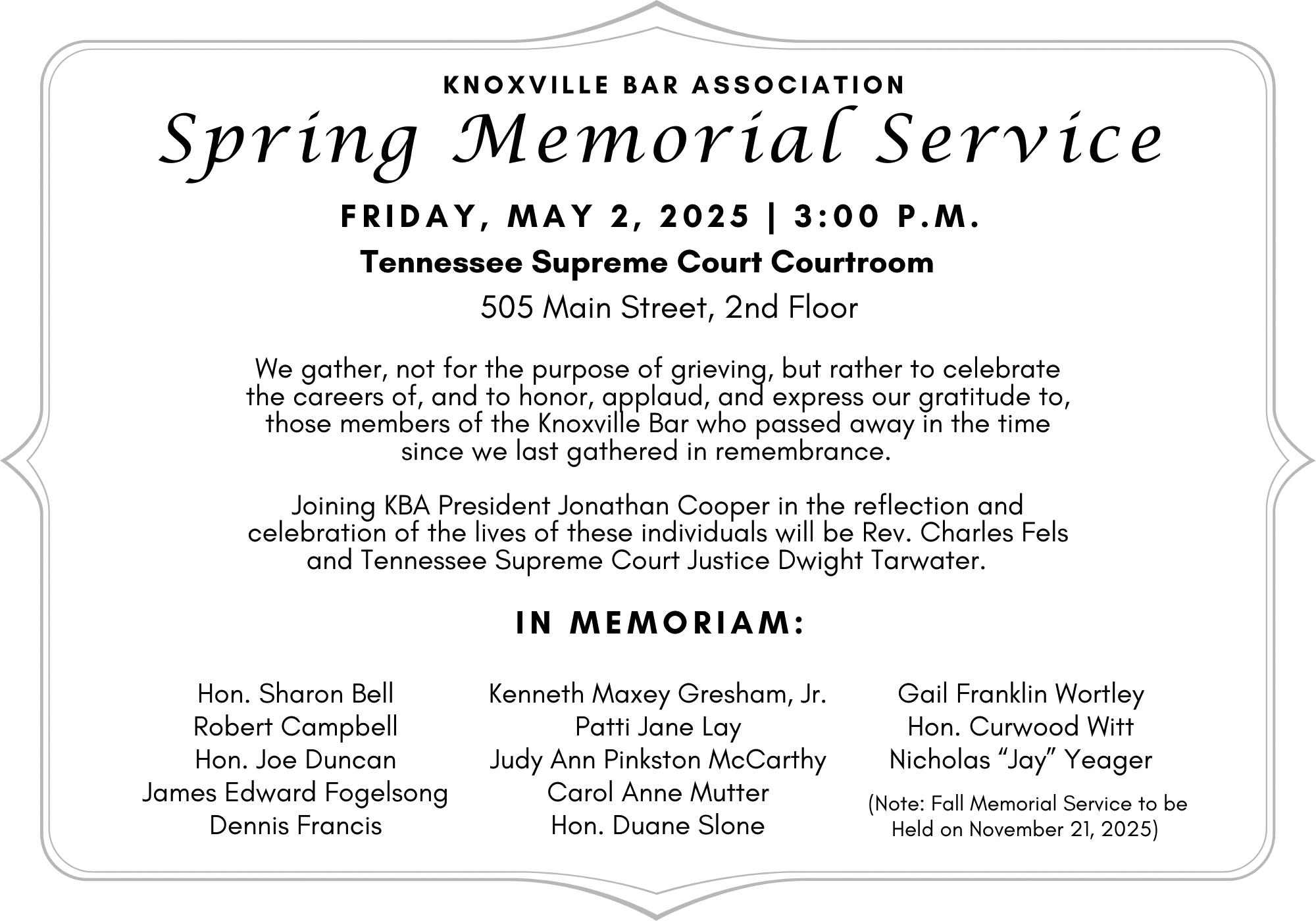
By: Bridget Pyman Arnett | Baker
Many KBA members are making a meaningful impact in our community through volunteer efforts. This column highlights not only the ongoing contributions of our members but also expanded opportunities to engage with community programs, such as CareCuts and Grow Free Tennessee, through the Barristers Volunteer Breakfast Committee.
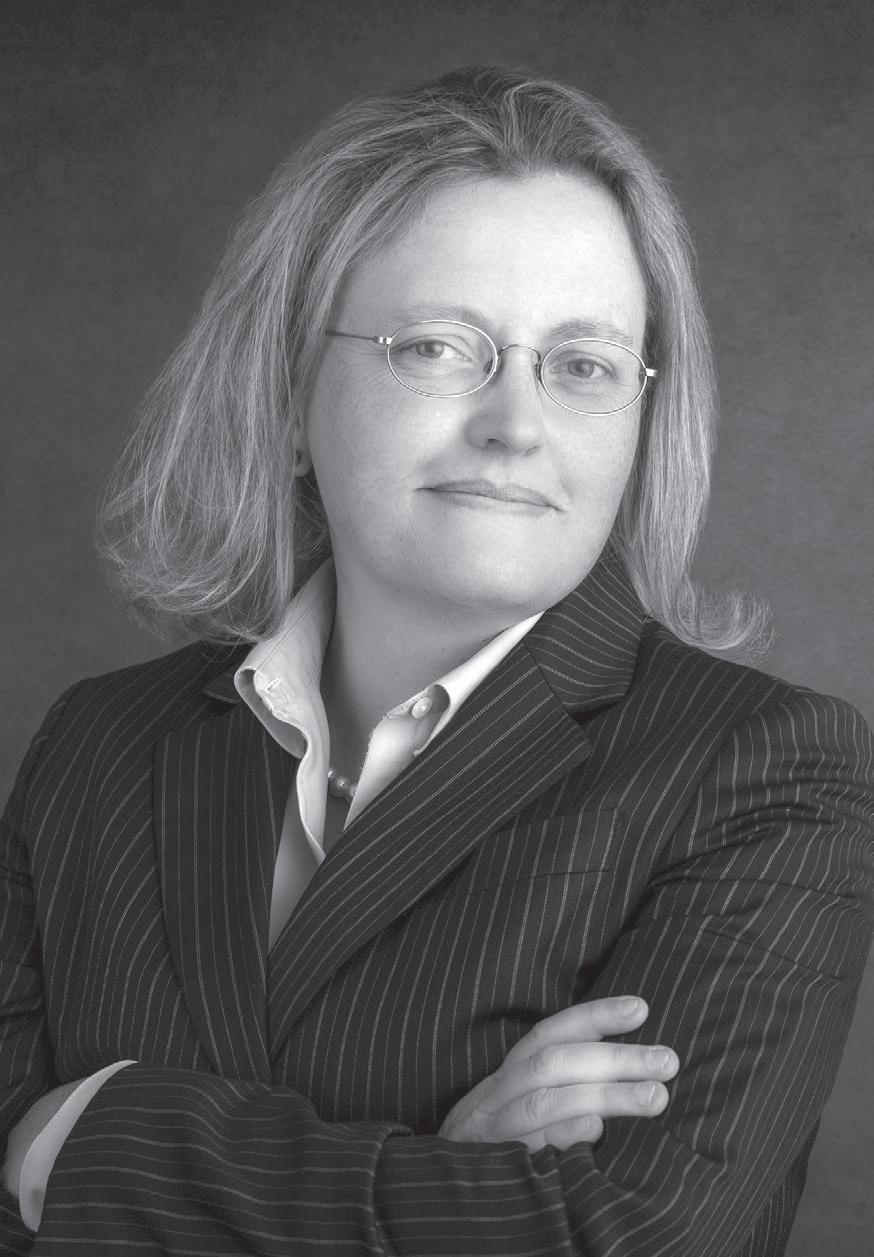
Rachel Hurt is a health care liability defense attorney and serves as the KBA’s President-Elect. Her professional career is complemented by a deep commitment to community service. The Hurt family sponsored the February Volunteer Breakfast and, for over 12 years, Rachel and her family have volunteered through the Barristers Volunteer Breakfast Committee, preparing, sponsoring, or serving a warm meal to the unhoused community via the Volunteer Ministry Center. Rachel recalls how her parents instilled in her the importance of volunteering from a young age: “At first, it was required, then expected, and now desired.” This foundation of service continues to drive Rachel’s ongoing volunteerism through the Volunteer Breakfast program, demonstrating how values passed down can shape lasting contributions to the community.
CareCuts of Knoxville: CareCuts is a non-profit organization powered entirely by volunteers, providing haircuts, hospitality, and essentials to individuals experiencing homelessness. Volunteers, including hair professionals, salon owners, and support staff, work together to provide not just physical care but also emotional support, helping people move forward from homelessness with dignity. The organization is currently seeking donations of powdered Gatorade, paper towels, ramen noodles, protein bars, and other essential items.
Grow Free Tennessee - Family Table Program: Grow Free Tennessee, part of the Community Coalition Against Human Trafficking, works to end human trafficking through awareness, training, and support for survivors. Through the organization’s Family Table program, volunteers can provide a warm meal to individuals staying at the organization’s safe house. Volunteering with Grow Free Tennessee
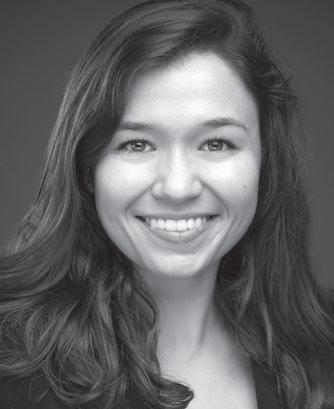
helps empower those on the path to healing and restoration, supporting survivors as they rebuild their lives.
For both of these programs, the Volunteer Breakfast Committee is available to assist with logistics via sponsorship, whether shopping for and delivering items needed for CareCuts or preparing and delivering meals for the Family Table program, offering members the opportunity to get involved if the time commitment to prepare or deliver items or meals isn’t feasible.
Volunteering is a powerful way to serve others, and our community benefits when we come together for causes like these. Whether it’s through regular efforts like the Volunteer Breakfast Committee or new initiatives like CareCuts and Grow Free Tennessee’s Family Table Program, there are many opportunities to make a difference. We encourage you to consider how you can get involved and help make our community stronger. To get involved or to learn more, please contact the co-chairs of the Volunteer Breakfast Committee, Bridget Pyman at bpyman@arnettbaker.com, and Miranda Goodwin at mirandaegoodwin@gmail.com.



By: Kayla Rachunek 2L, LMU Duncan School of Law
Daniel L. Ellis, Esq. Law Firm of Daniel L. Ellis, PLLC

I’m Knox. I am an English Cream Golden Retriever, and I’m 1.5 years old in human years. I am a service animal, which means that I am trained to perform tasks directly related to my owner’s1 disability. My owner has lupus. They were diagnosed when they were 18 years old. Lupus in an autoimmune disease, which means the body’s immune system attacks its own tissues and organs. Inflammation caused by lupus can affect many different body systems––including the joints, skin, kidneys, blood cells, brain, heart, and lungs.2 I was only three months old when I first alerted my person to the start of a lupus flare-up and lay by their side through it. It was then that my owner made the decision to have me trained and to train me as a service animal as they began to have an increased number of flare-ups and even more frequent narcoleptic episodes. Unfortunately, not everyone is lucky enough to get a new puppy that has the immediate instinct to alert to disabilities, but there are thankfully many amazing programs that help many people with disabilities find the perfect service animal for their disability.
As many of the lawyer humans may know, the Air Carrier Access Act (ACAA), 49 U.S.C. § 41705, prohibits discrimination in airline service based on disability. Though when enacted in 1986 the ACAA applied only to U.S. air carriers, on April 5, 2000, the Wendell H. Ford Aviation Investment and Reform Act for the 21st Century (AIR-21) amended the ACAA to include foreign carriers as well. Subsequent U.S. Department of Transportation rulemaking clarified what a service animal is and what would be required for airlines as opposed to public entities under the Americans with Disabilities Act (ADA––not the Airlines Deregulation Act, that’s a whole other ADA). Usually, airline and airport staff are well trained and know that they “must permit a service animal to accompany a passenger with a disability on the passenger’s lap or in the passenger’s foot space, unless this location and placement would:
(1) Be inconsistent with safety requirements set by the FAA or the foreign carrier’s government; or
(2) Encroach into another passenger’s space.”3
I’ve found the space at my person’s feet more than adequate. I’m not the smallest dog, but my human isn’t the largest human, either. For bigger dogs serving as service animals on an airplane for a passenger, if those dogs are too large to be “accommodated on the passenger’s lap or in the passenger’s foot space without encroaching into another passenger’s space,” then the airline “must offer the passenger the opportunity to move with the animal to another seat location within the same class of service, if available on the aircraft, where the animal can be accommodated.”4 Of course, “[i]f there are no alternatives available to enable the passenger to travel with the service animal in the cabin of the scheduled flight, [the airline] must offer the passenger the opportunity to transport the service animal in the cargo hold free of charge or travel on a later flight
to the extent there is space available on a later flight and the transport is consistent with the safety requirements set by the FAA or a foreign carrier’s government.”5 The Department of Transportation’s (DOT) regulations6 clearly state, “You must not deny transportation to a service animal based on the animal’s breed or type or on the basis that its carriage may offend or annoy carrier personnel or persons traveling on the aircraft.”7 These regulations define service animal differently than the American’s with Disabilities Act, defining service animal as “A service animal is a dog, regardless of breed or type, that is individually trained to do work or perform tasks for the benefit of a qualified individual with a disability, including a physical, sensory, psychiatric, intellectual, or other mental disability.”8
We fly often, and a busy airport can add stress to both the human and the dog, but when there are supportive and helpful staff along the way, it makes the trip more enjoyable. Airport, airline staff, and public entities aren’t responsible for the care or supervision of a service animal,9 but that isn’t a concern because I’m here to serve and follow my human’s instructions while alerting them and doing my duty.10 I know that when my vest is on it’s time to work, and most people are kind and understand my role. Though at times, people will disregard my vest which is clearly marked “service animal do not pet.” This can be very frustrating, but then you have others who are aware of the animal’s job and respect our space.
My owner has filled out multiple U.S. Department of Transportation Service Animal Air Transportation Forms11 and carries one with them when we fly. Most airlines and airport staff don’t ask, and if they do, they are only allowed to “make two inquiries to determine whether an animal qualifies as a service animal. You may ask if the animal is required to accompany the passenger because of a disability and what work or task the animal has been trained to perform.”12 They are not to ask “about the nature or extent of a person’s disability or ask that the service animal demonstrate its work or task.”13
My guardian and partner (my owner) have been traveling with me (their service dog) for almost a year now. My owner knows that while travelling with a service dog, it is important to keep your boundaries set with others around you. Our favorite interaction so far has been when we are in a location with human kids, and as we walk past them, their parents make it very clear that I am one of the “doggies we don’t pet.” It’s a refreshing feeling when others around you are knowledgeable about service animals and respect the job. We are all walking our own journeys, and not all disabilities are visible or understood by others, but with kindness, a little knowledge, and mutual respect, our flight through the sky is easier for us all.
1 Since we are adopting the perspective of a canine, we are using various synonyms: owner, handler, guardian, caregiver, or person with a service animal.
2 Lupus. (2025). Diseases and Conditions. Mayo Clinic. https://www.mayoclinic.org/ diseases-conditions/lupus/symptoms-causes/syc-20365789.
3 14 CFR § 382.77.
4 14 CFR § 382.77(b).
5 14 CFR § 382.77(c).
6 The DOT’s authority to regulate nondiscrimination in airline service on the basis of disability is based in the DOT’s rulemaking authority under 49 U.S.C. § 40113, which states that DOT may take action that it considers necessary to carry out this part, including prescribing regulations.
7 14 CFR § 382.72.
8 See 85 Fed. Reg. 79742 (https://www.federalregister.govdocuments/2020/12/10/ 2020-26679/traveling-by-air-with-service-animals). See also U.S. Department of Transportation Final Rule on Traveling by Air with Service Animals 14, Docket No.
continued on page 31
By: Robbie Pryor Pryor, Priest & Harber

Let’s have a talk. Well, I’ll talk. You listen…or read. Then we can discuss, as this and the next two columns will be my last for this fine periodical. Here we go.
It started with my daughter, Shelby (age 28), going through job interviews. I wanted to help her, so I entered the world wide web internet thing we have these days thanks to people like Billy Gates, Big Al Gore, and surely, Donald Trump. I quickly fell into a rabbit hole. Who knew all this information was in there? As I flipped through potential questions she might receive in an interview, one stopped me in my tracks. It was worded something like “In one sentence tell us something you would like to share with the world - one true thing that you have learned from life?” Wow. Employers are getting a bit existential these days. My first thought was “The McRib is underrated,” or “Knoxville weather in February sucks.” Both are true on the level of DNA testing, but I don’t think that’s what a big company would be looking for as a proper response. As with everything else with me, I was on my way to overthinking a thing. As I began contemplating and searching, I forgot I intended to help Shelby and instead, began thinking of what the answer should be - not “an answer,” but “the answer.” It broke me for a week, then two. Philosophers and religious leaders have dedicated their lives to such things. I certainly knew I couldn’t answer it in one sentence, but I never doubted that I could formulate an answer. I tried once before. Can you answer it? How about a column in DICTA? How about 3? Come on! This question, and its answer, could transport us into another dimension! This is a meaningof-life question. Too big to cover in an essay? Surely not. I know what many of you are thinking…“This Robbie Pryor character is going to attempt to give us the meaning of life in a DICTA column.” (cue the rolling of eyes). No, I’m not. It’s going to take three.
The prompt renewed a personal search that had existed for 25 years. I started this time with things I know. The American Jury Trial. I am, after all, a lawyer. We are what we do…aren’t we? Opening statement, closing argument, cross-examination, voir dire, etc. I taught Trial Practice at the University of Tennessee College of Law for 15 years. My “Speeches & Lectures” and “Law School” folders on both my home and office computer are filled with things I’ve learned from others about law and life. Could the one true thing be found within this material and my interactions with juries on behalf of the injured or the dead? Indeed. I have 30 years of interactions with brilliant lawyers and students. I am also a parent. I coached youth sports teams. I have 5 kids. I’ve seen a lot and I know some things about things. I’m 56 years old and have been married 32 out of the last 33 years. But this goes beyond “switch defenders on the ball-side screen,” or “never ask an open-ended question on cross.” I’m probably not qualified to speak to the world on many subjects, but that wouldn’t and shouldn’t stop any of us from answering what we find to be true. So, I searched. The further I explored, the more this became a legacy question, not just a job interview question. Perhaps one I’d like to hear others answer - many others. We’re not talking about quips or
incidental truths anymore. We are talking material for quotes on t-shirts and Instagram memes. Things that might be chiseled on rocks…or mountains.
At the time of this renewal of a past obsession I was preparing for a speech. I noticed a trend with regard to my speaking requests. “SelfAwareness as a Lawyer,” “Ethics,” “Navigating Life as a Lawyer,”(twice), and “Self-Assessment” have been the last few topics on which I’ve been asked to offer my thoughts to audiences ranging from students to experienced lawyers. Why the change? I’d say this column has something to do with it, but I told my wife that it appears as though I’m going through a mid-life transformation. The universe is speaking to me - I’ve gone from some sort of knowledgeable soul on the mechanism of our jury trial to a guru on mindfulness, or, better yet, a sort of Yoda on finding peace as an attorney. She greeted this theory with an eye roll. I told her that I should perhaps be teaching mindfulness at resorts in Thailand like in the HBO show, White Lotus. “Have you taken your blood pressure medicine today, Yoda?” was her response. Undeterred, head down, headphones in, and armed only with my Spotify playlist, my laptop and mass collection of journals, I began my renewed search for the answer by turning back to a journal I purchased on October 23, 2000.
I was a couple of weeks from my 32nd birthday when I walked into the bookstore. I was wearing her favorite blue suit. I usually loved putting on my jeans and sneakers - even my house shoes - and sneaking into Barnes & Noble on a Saturday either alone or with Shelby (age 4) in tow, but this was a Wednesday and there was nothing comforting about my mission. I was making a short stop on my way to bury my wife. I’d purchased journals before. I carried one in law school, documenting assignments, cases I’d read, and the phrases spoken by respected professors. In those days I wrote down my schedule and reminders, including things to ask and tell my new roommate, Cheryl. We were married right before I started law school, newlyweds in a foreign land. My entries in those days were logistical, practical. I was journaling an academic and professional journey. I was writing to learn and understand. She was the one who went on to record the events of our lives together - the moves, the births of Andy and Shelby, family celebrations and milestones. She recorded them in journals and scrapbooks with flowing descriptions in a beautiful hand, aided by photos depicting the progress of our young lives together. She’d been recording history. But on that warm fall morning, as I was on the way to the funeral home, I realized I had a new path to document and a profound need to, again, learn and understand. I didn’t know of any other way to understand the devastation than by studying it. I often wish there was security camera footage of the broken young man offering his membership card at the register that day, a reluctant Columbus crossing the gang-plank onto the deck of his ship at Palos de la Frontera. What follows is a report from the 25-year expedition, and, as the prompt demands, an unfiltered and undeniable truth… To be continued.
EXPANDING OUR HORIZONS, continued from page 30
DOT–OST–2018–0068, RIN No. 2105–AE63, 14 CFR Part 382 et. seq. (available online at https://www.transportation.gov/sites/dot.gov/files/2020-12/Service%20 Animal%20Final%20Rule.pdf)
9 See 28 CFR § 35.136(e).
10 See 28 CFR § 35.136(b) Service animals “Exceptions. A public entity may ask an individual with a disability to remove a service animal from the premises if- (1) The animal is out of control and the animal’s handler does not take effective action to control it; or (2) The animal is not housebroken.”
11 See 14 CFR § 382.75(a), “If a passenger with a disability seeks to travel with a service animal, you may require the passenger to provide you, as a condition of permitting the service animal to travel in the cabin, a current completed U.S. Department of Transportation Service Animal Air Transportation Form. Current means the form was completed on or after the date the passenger purchased his or her airline ticket.”
12 14 CFR § 382.73(a)(1).
13 Id.
